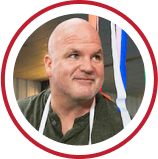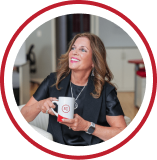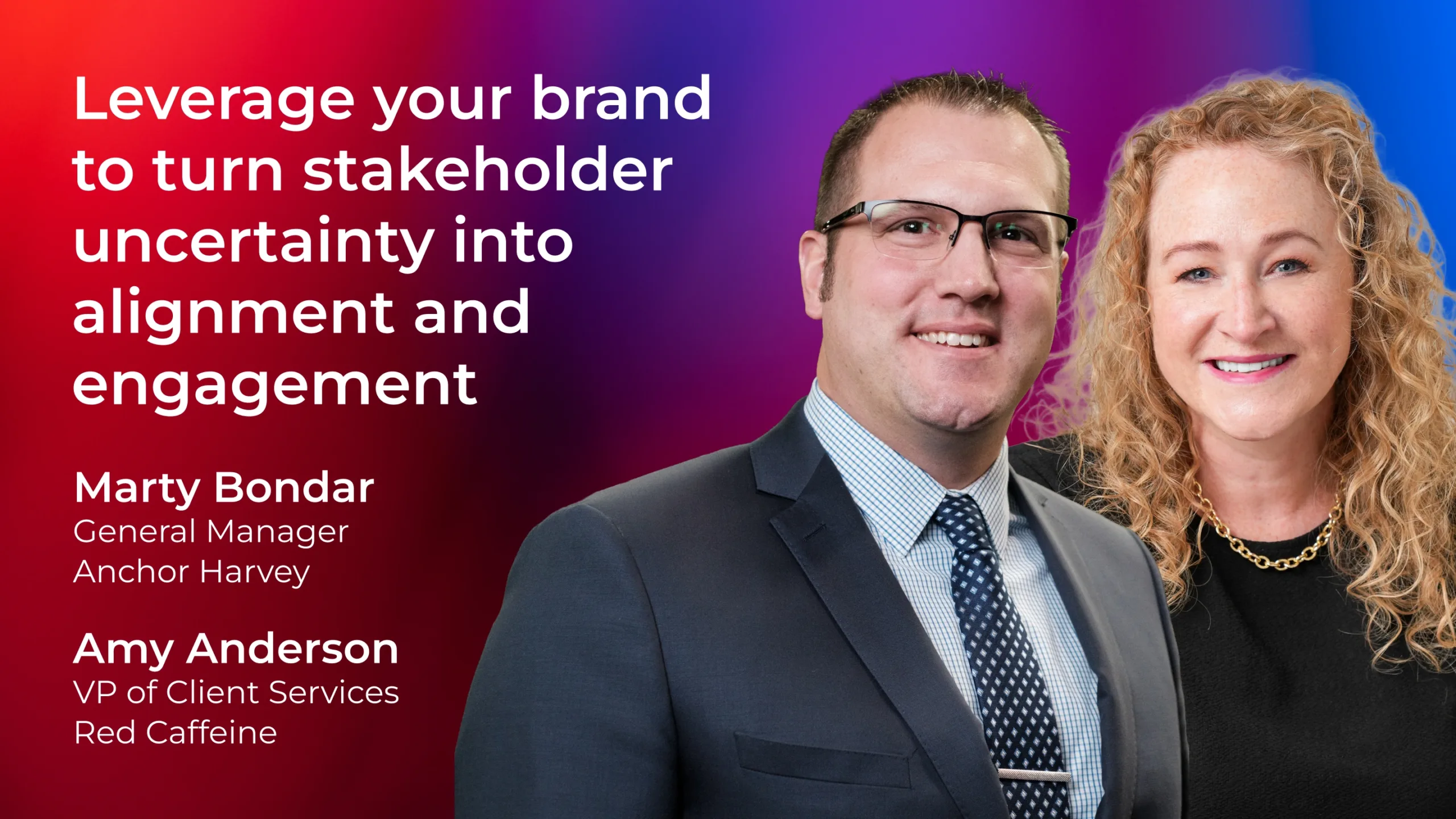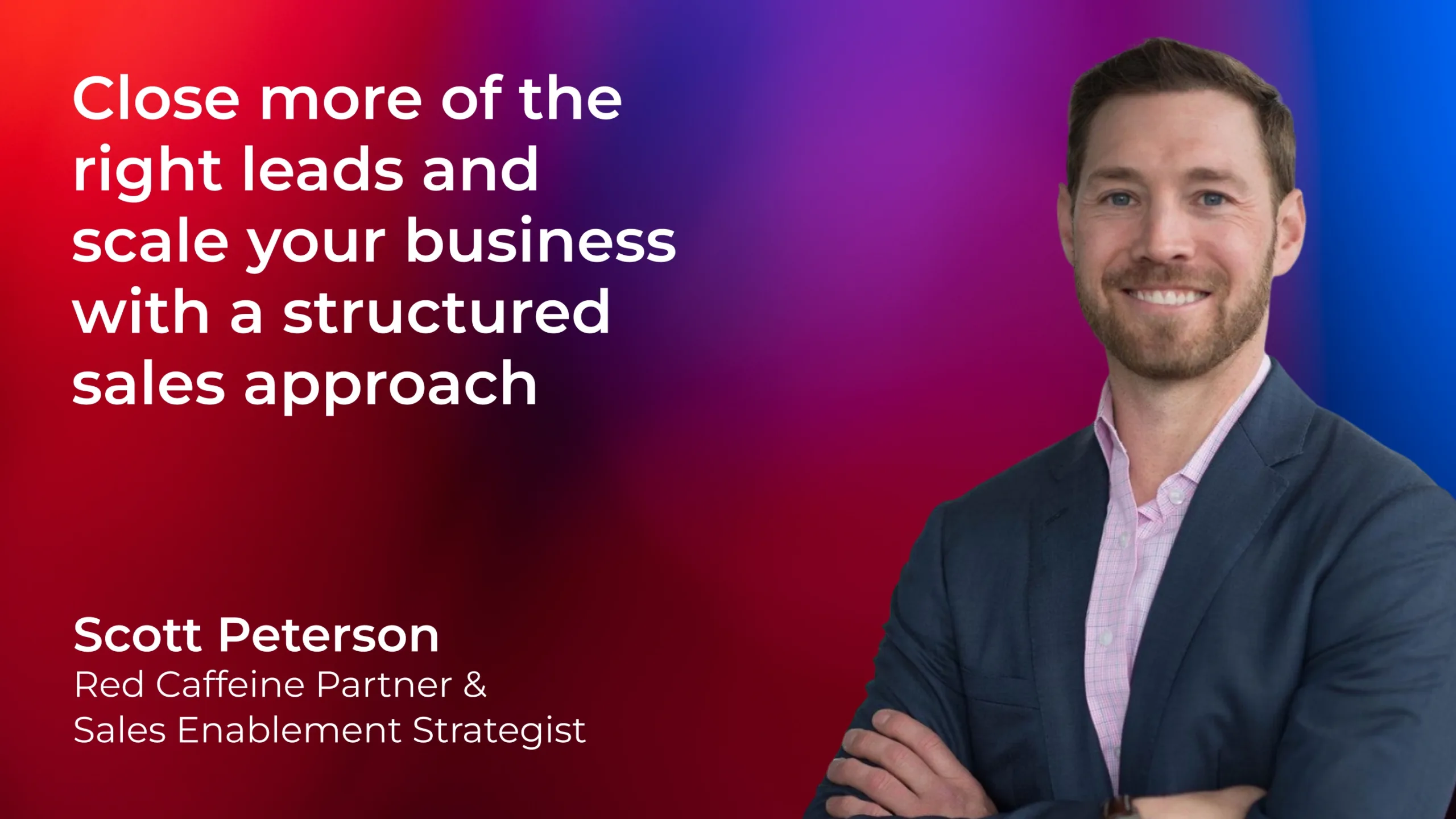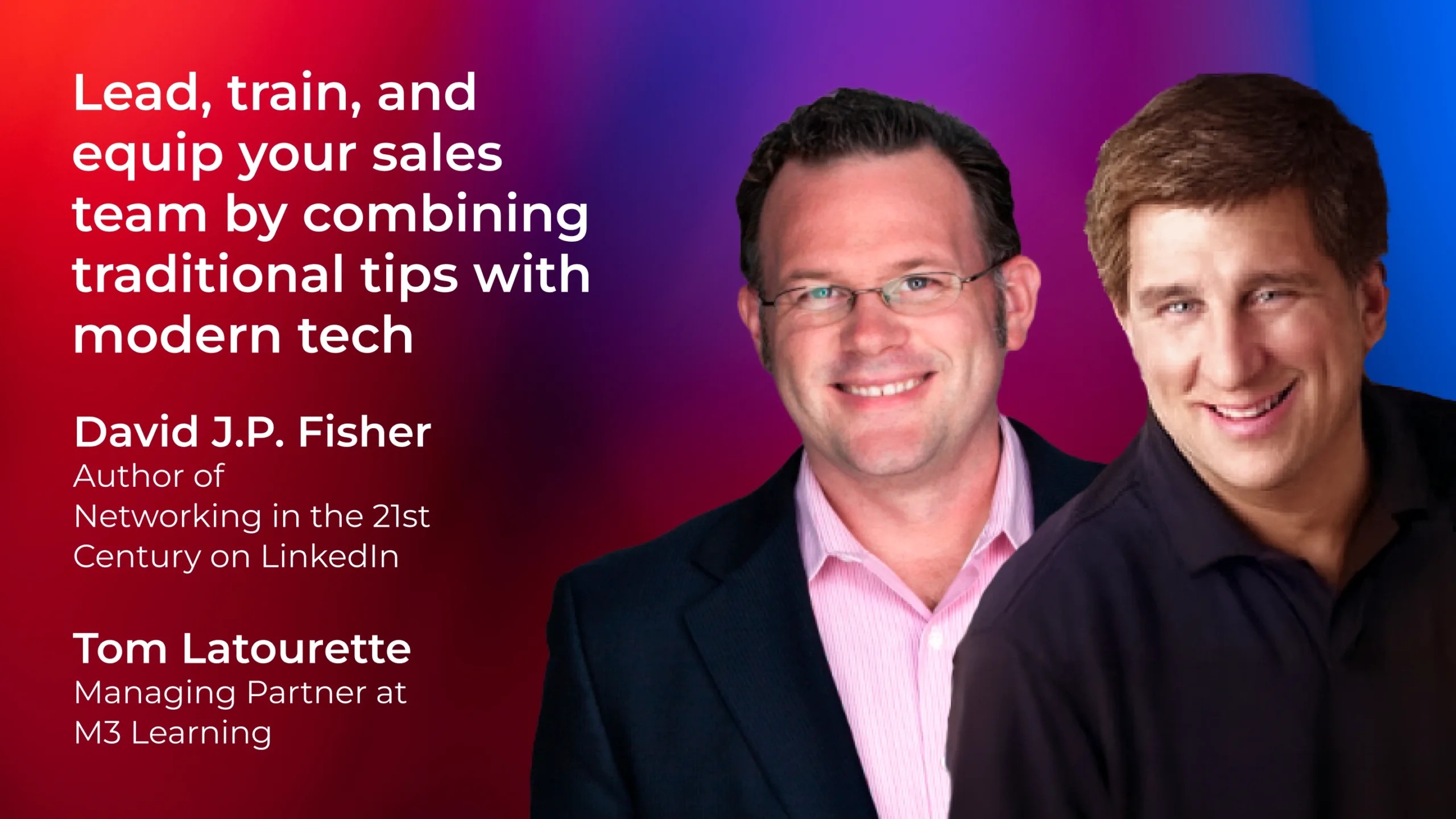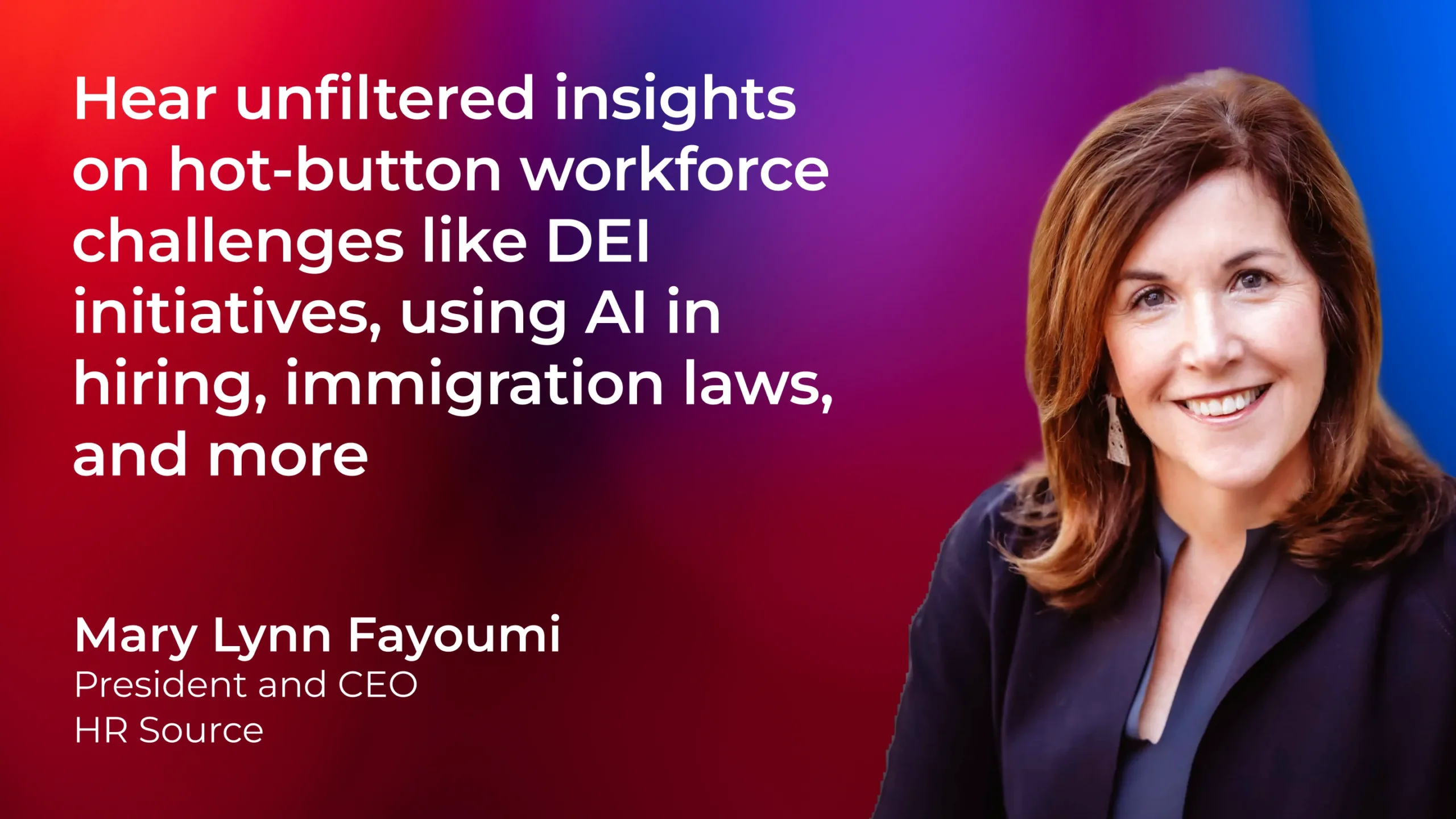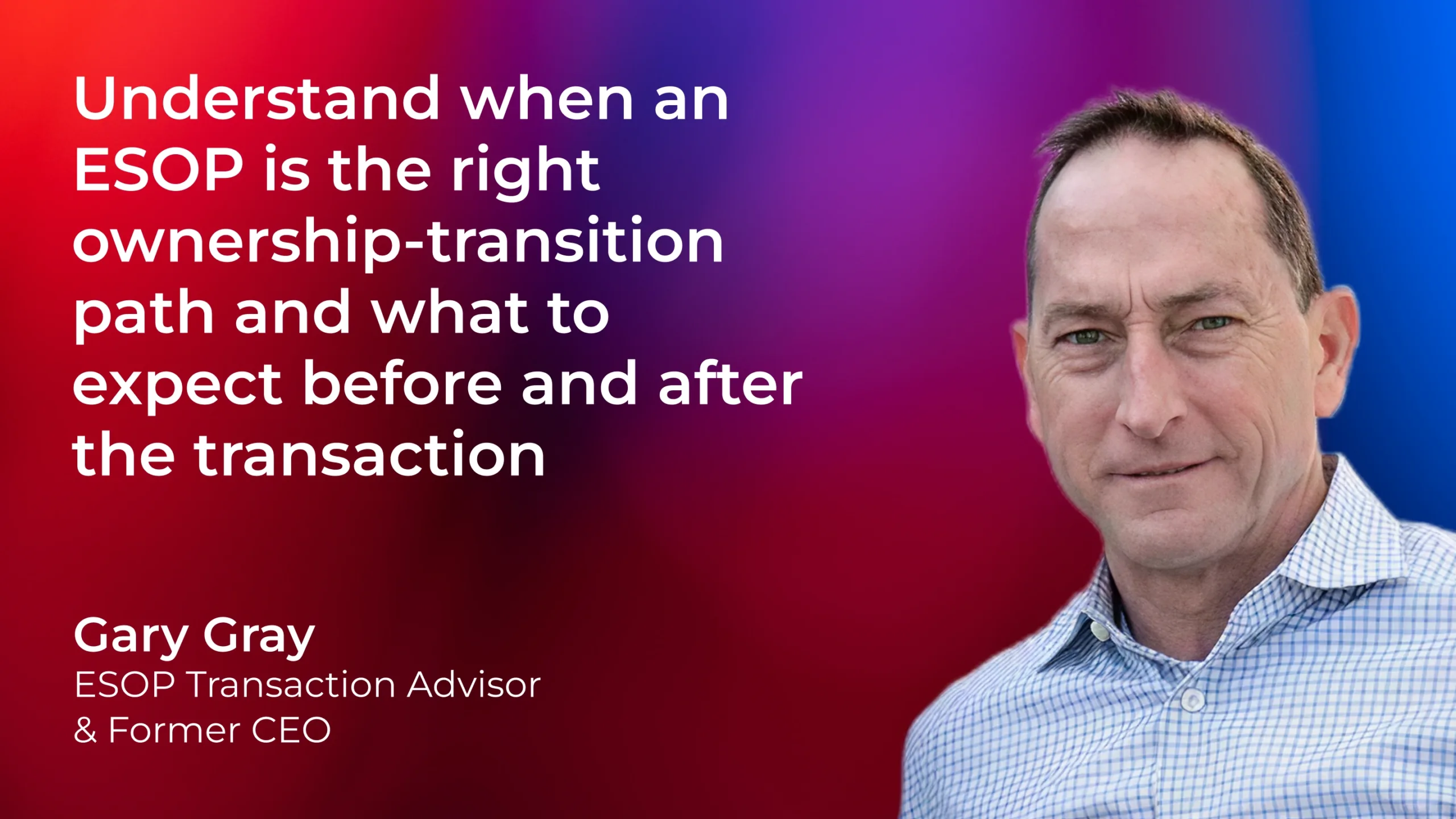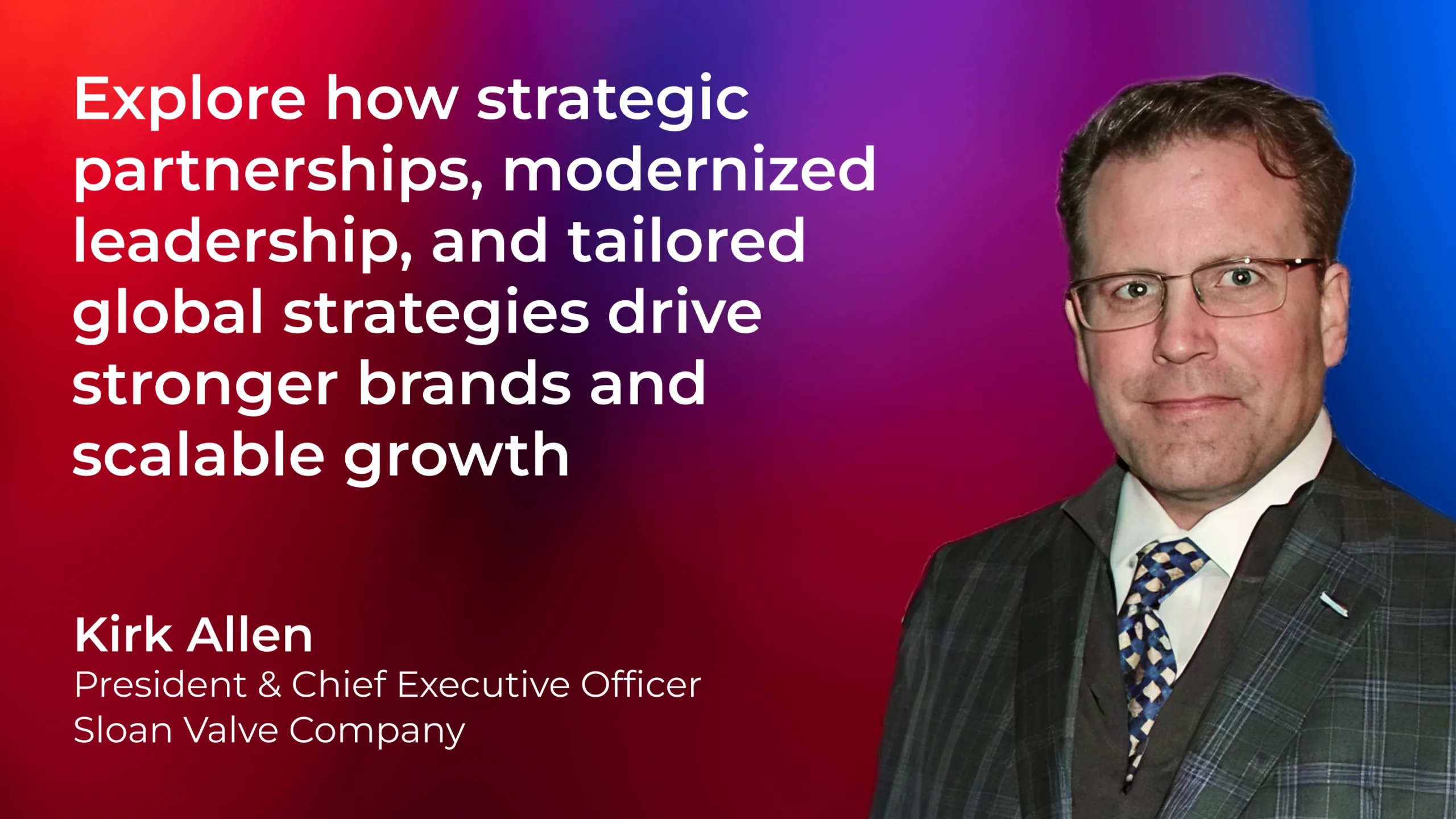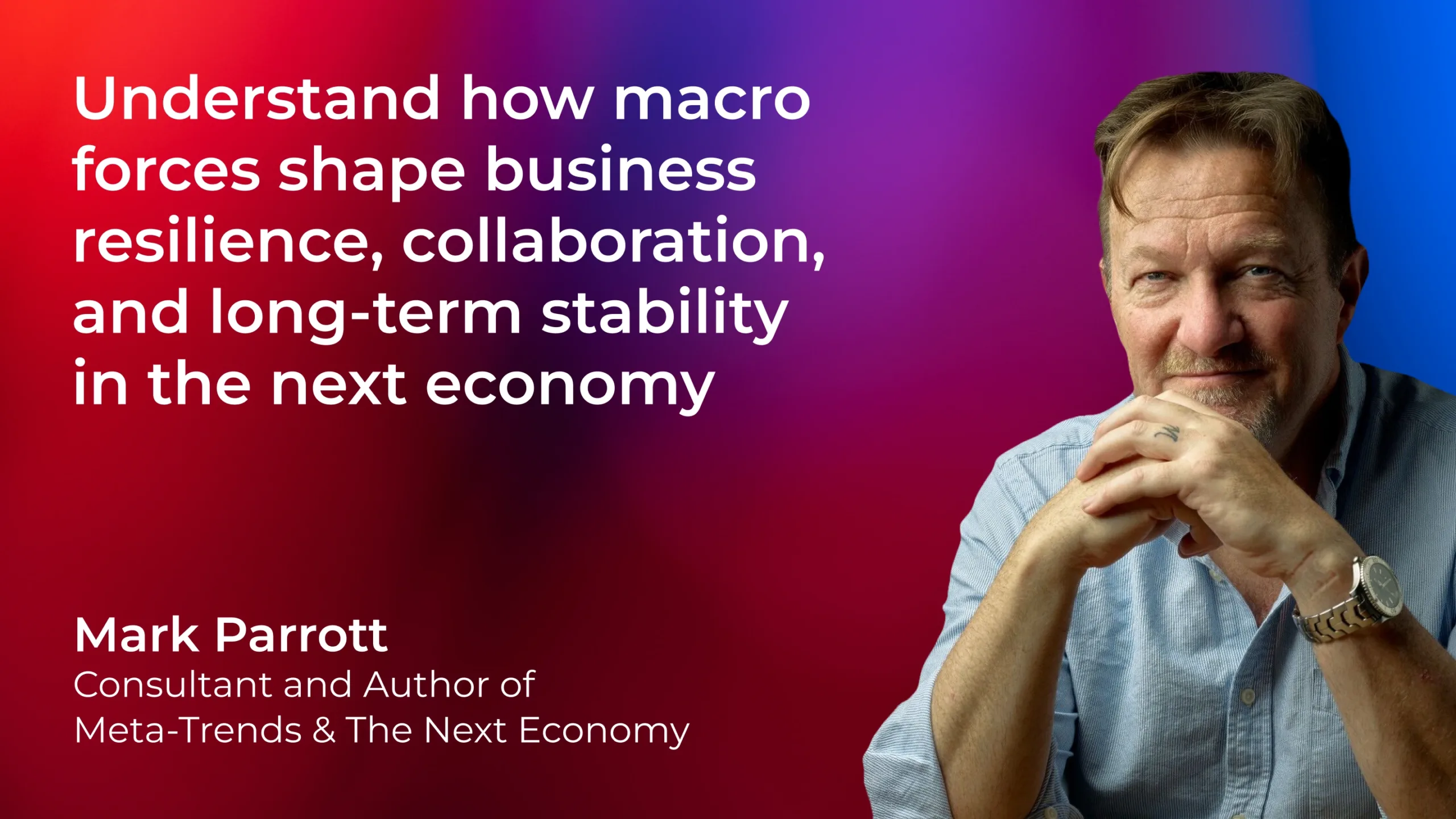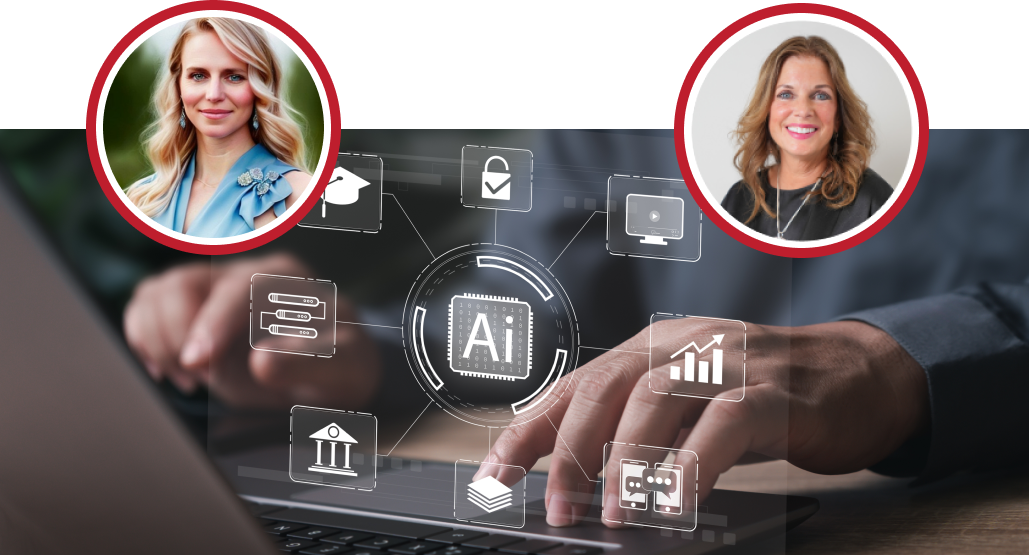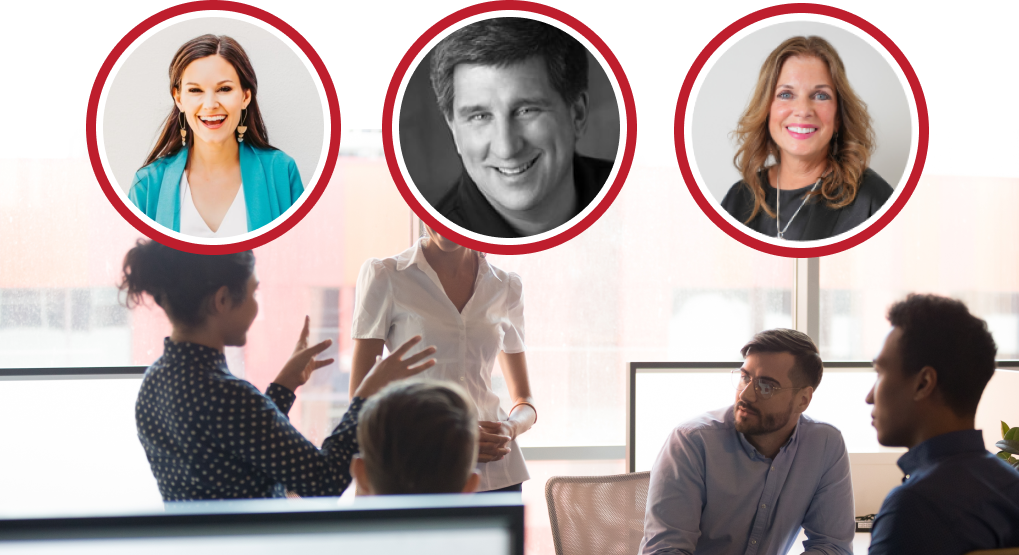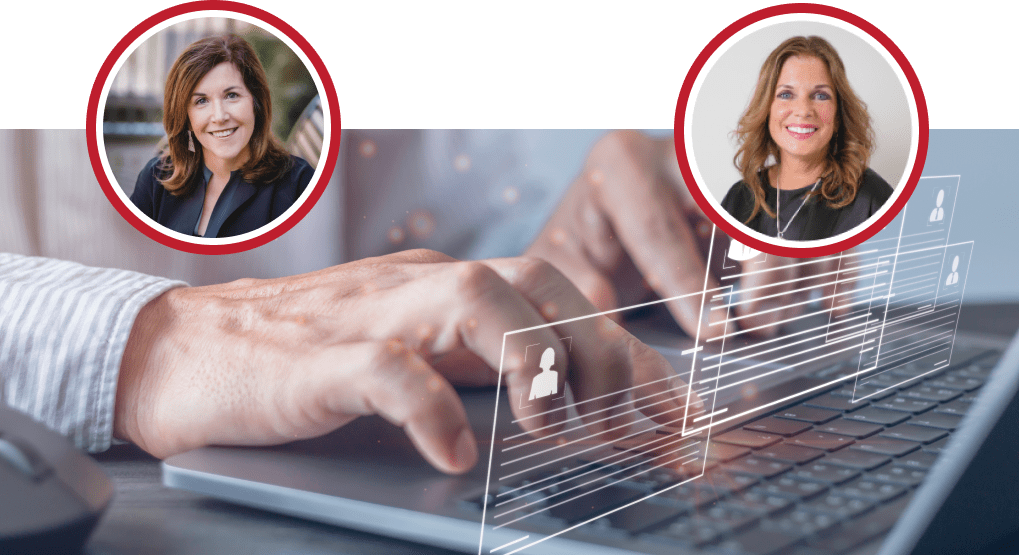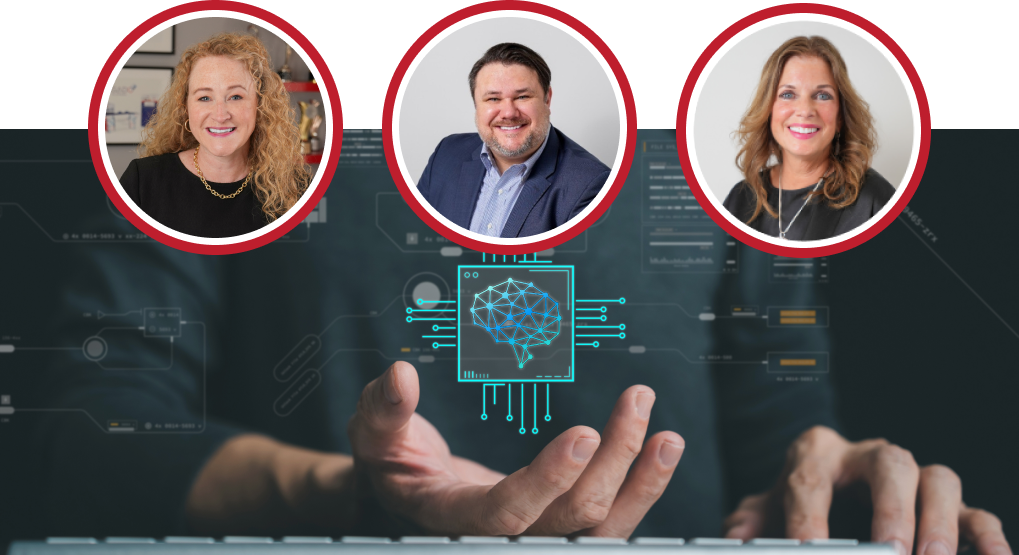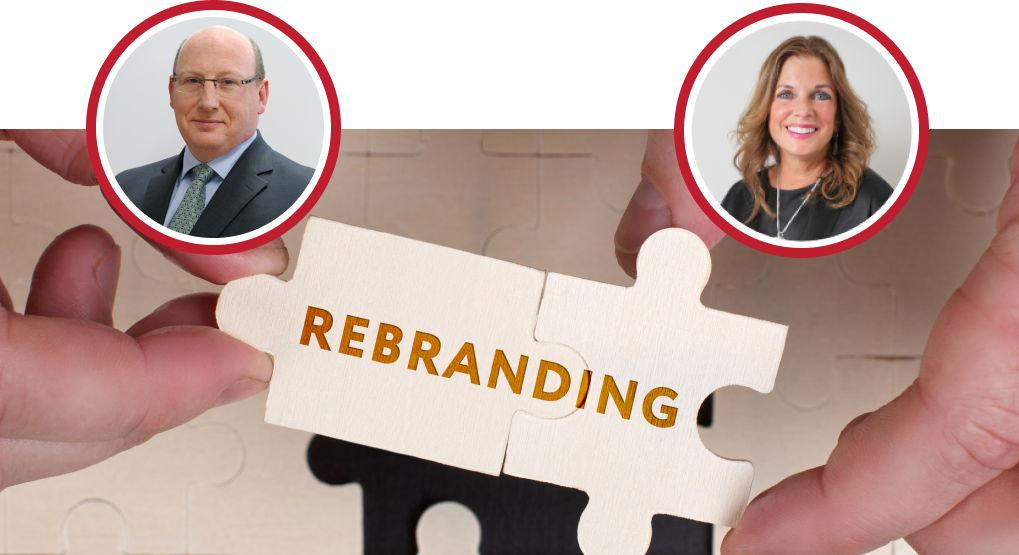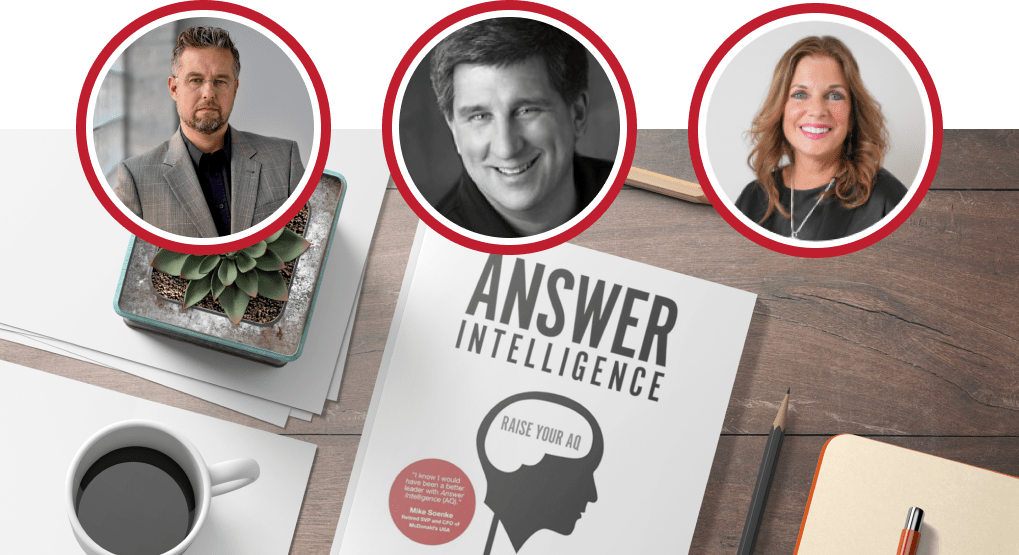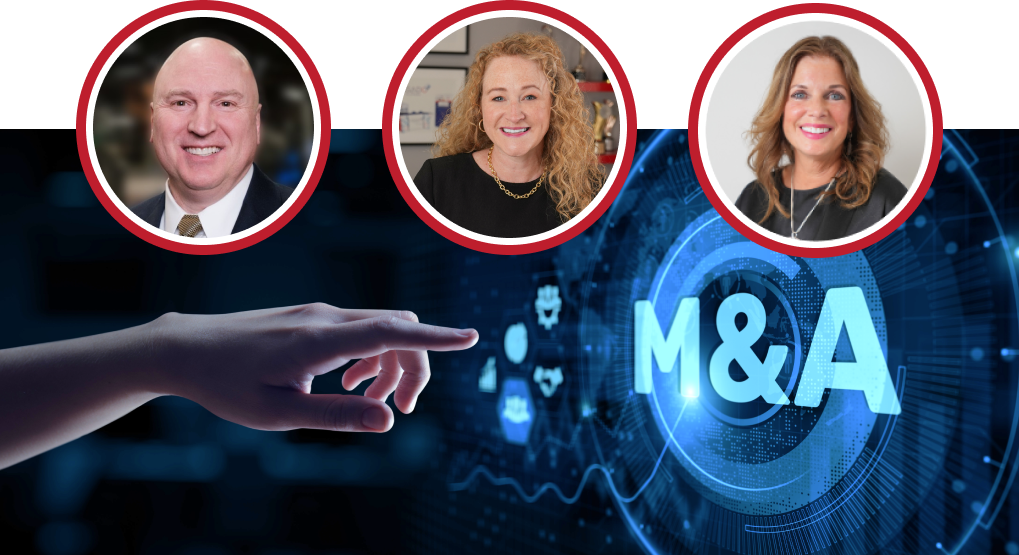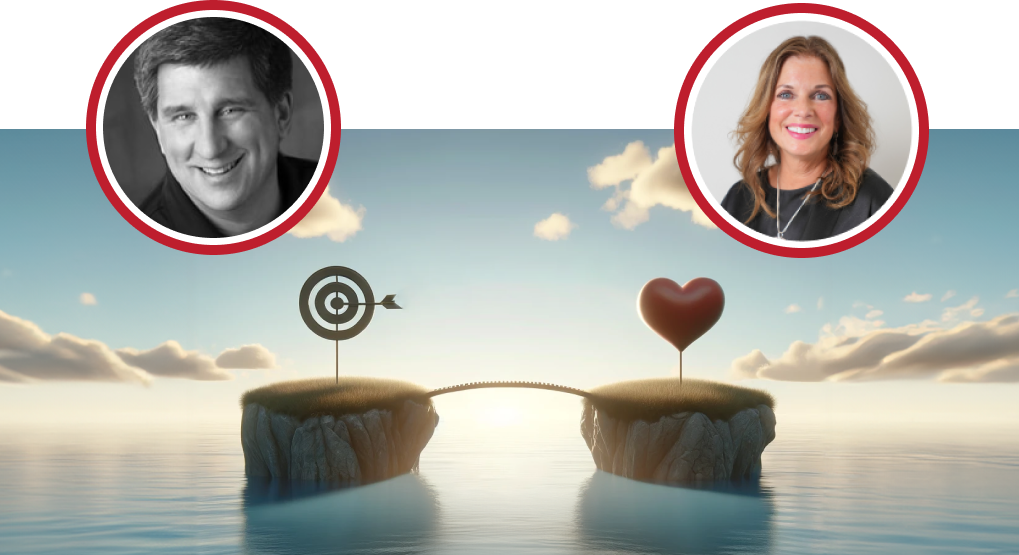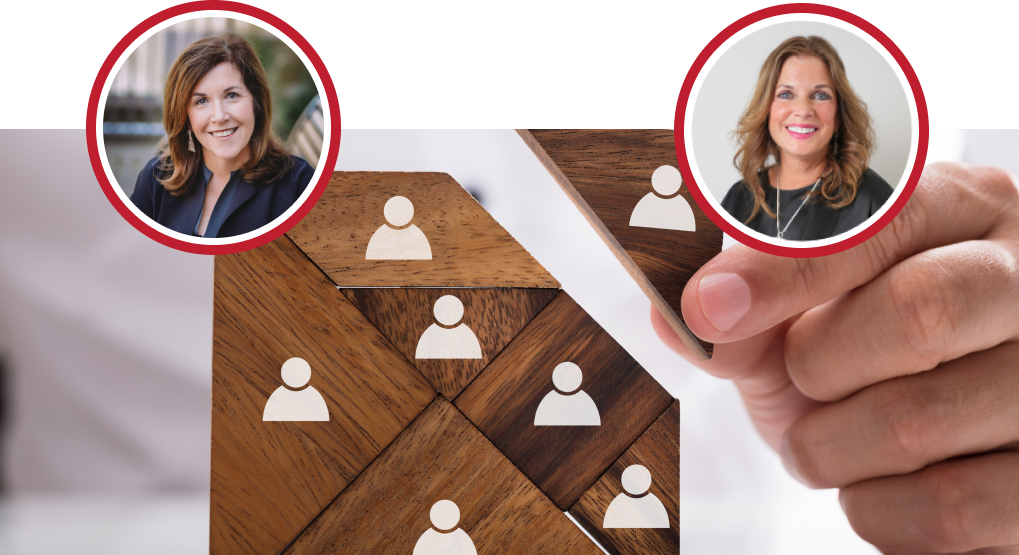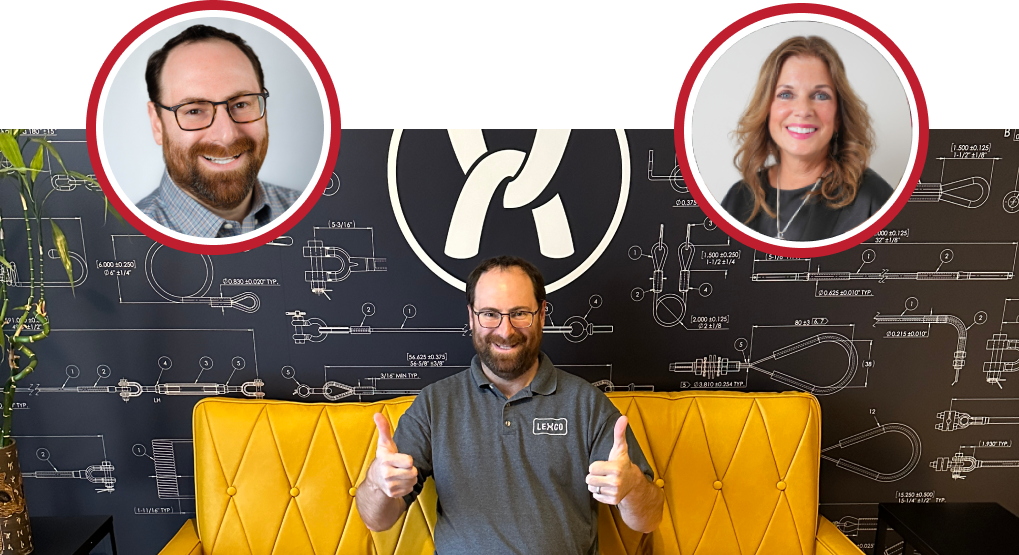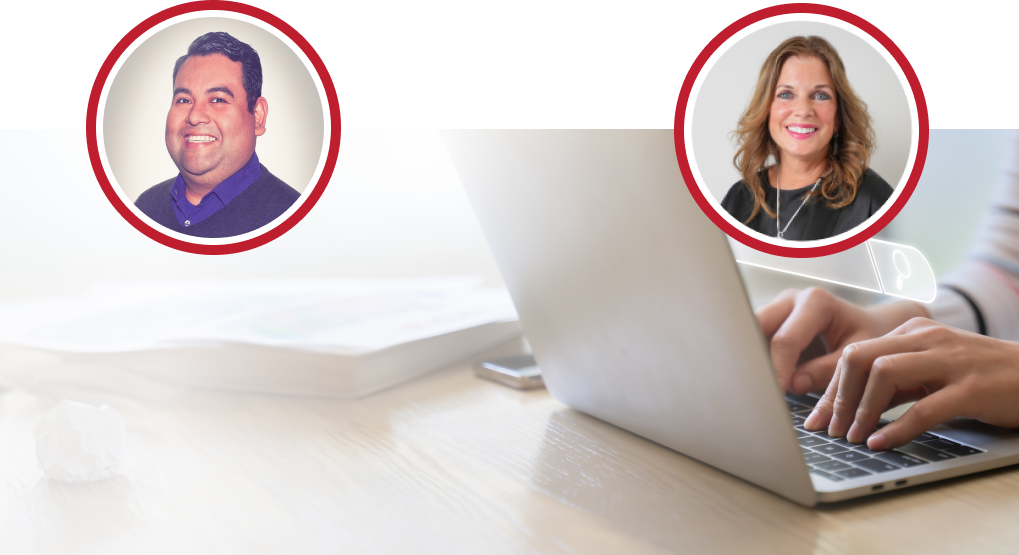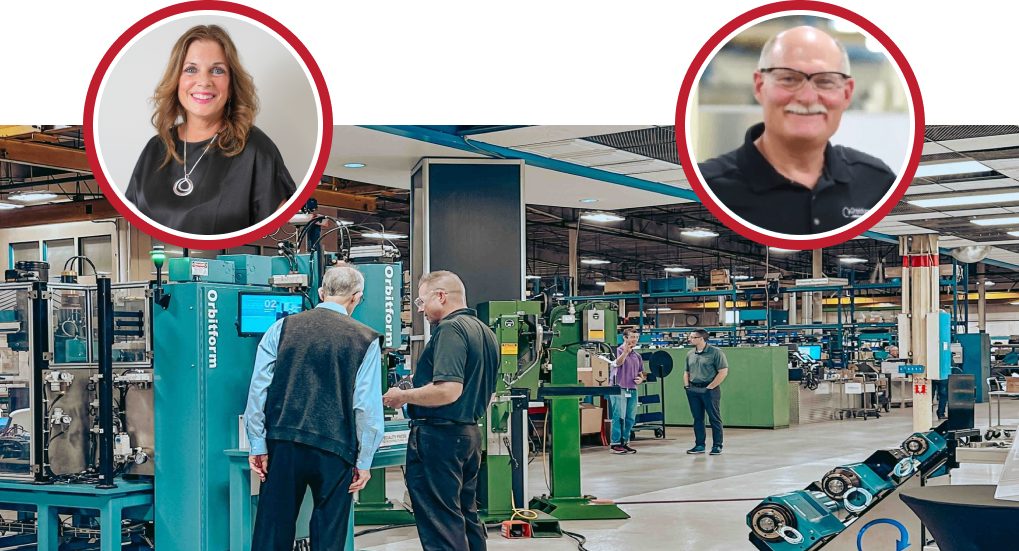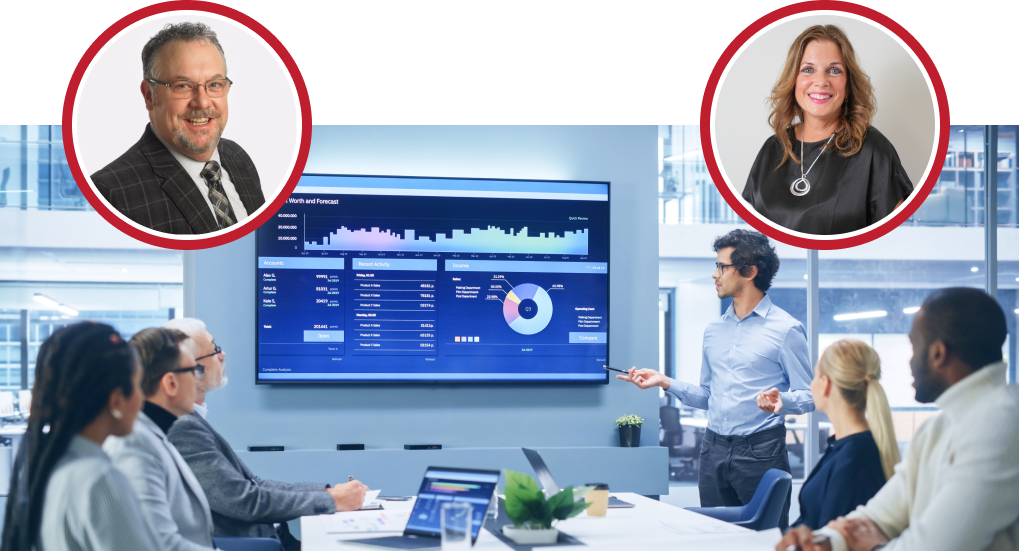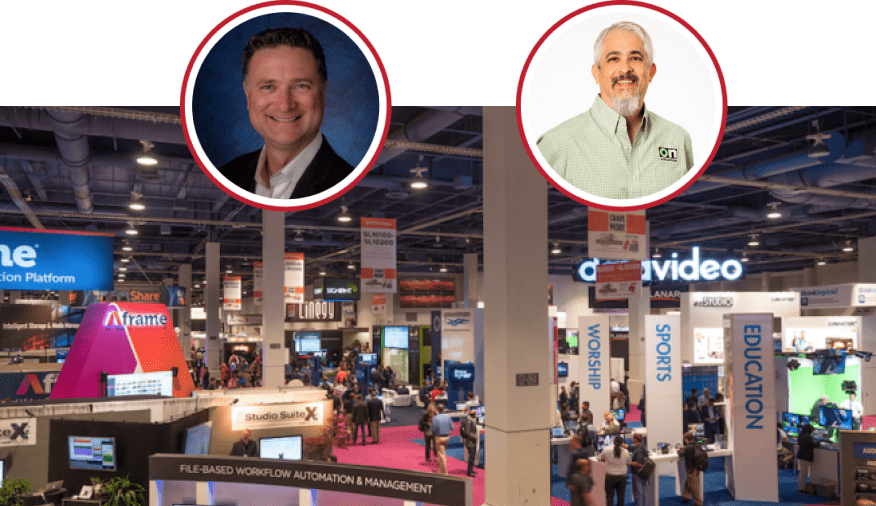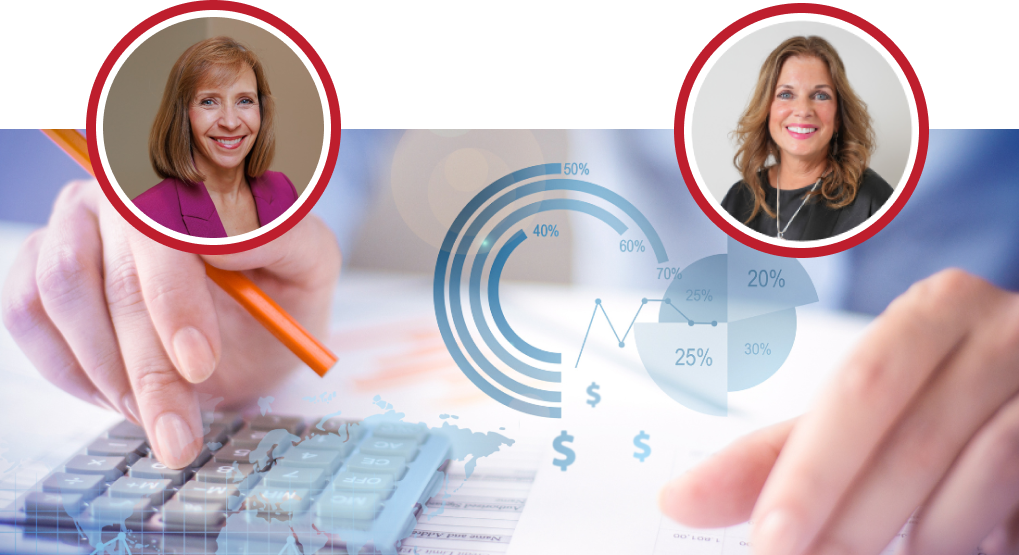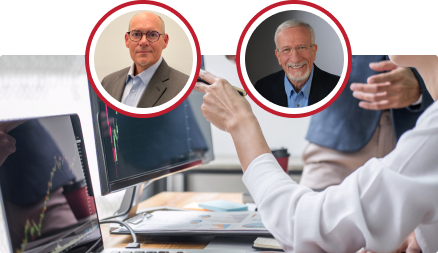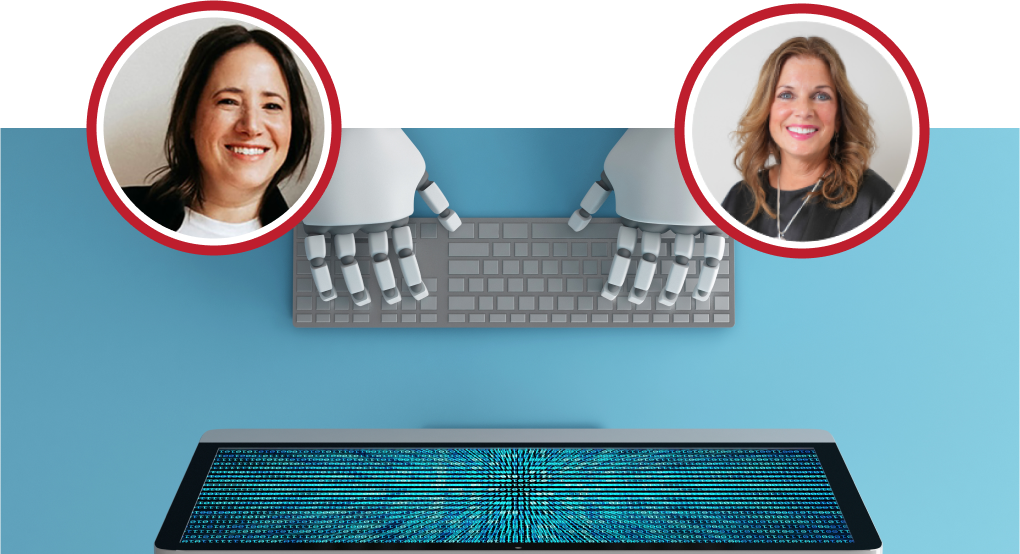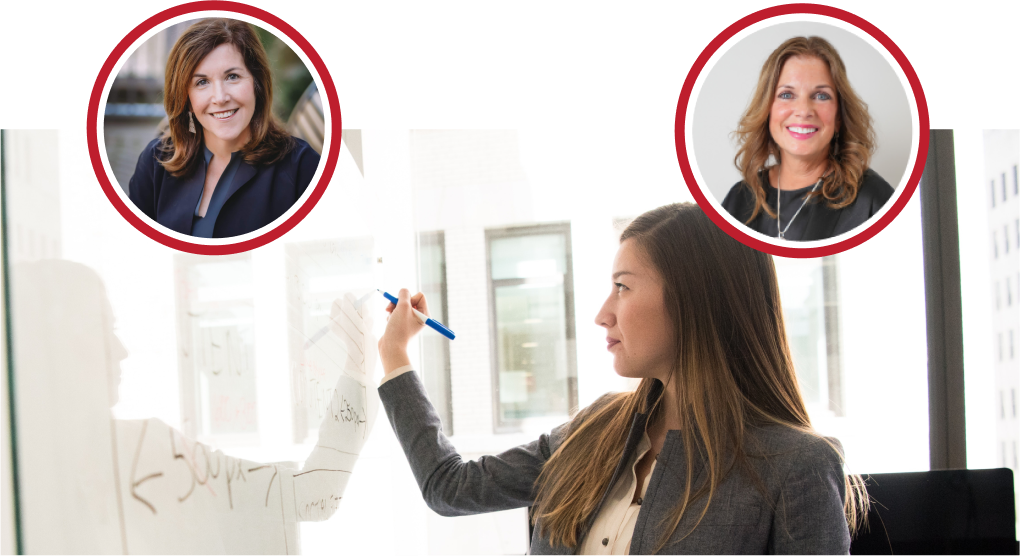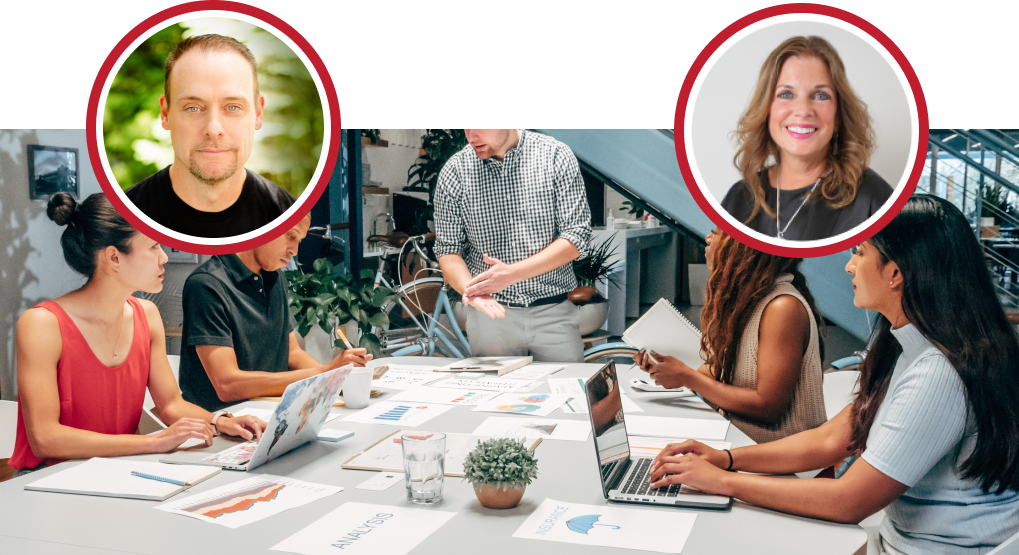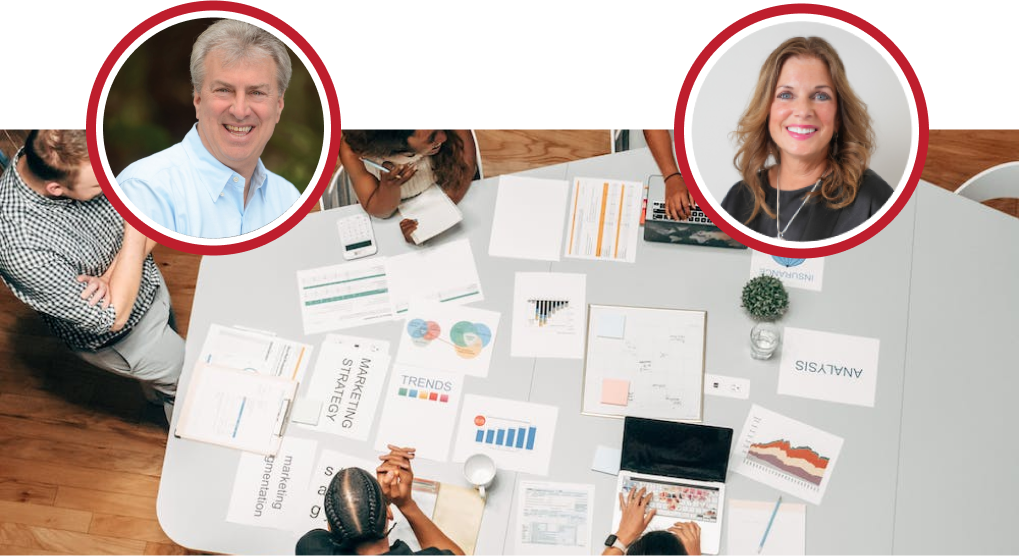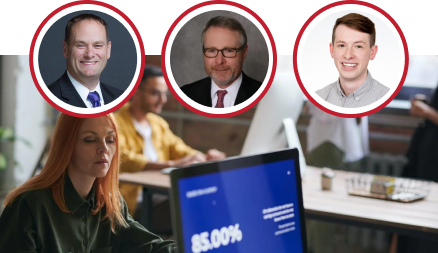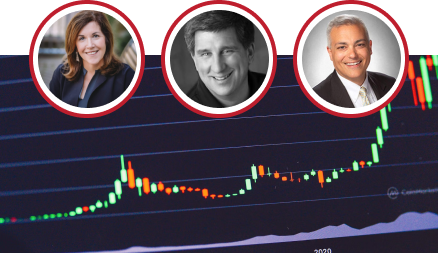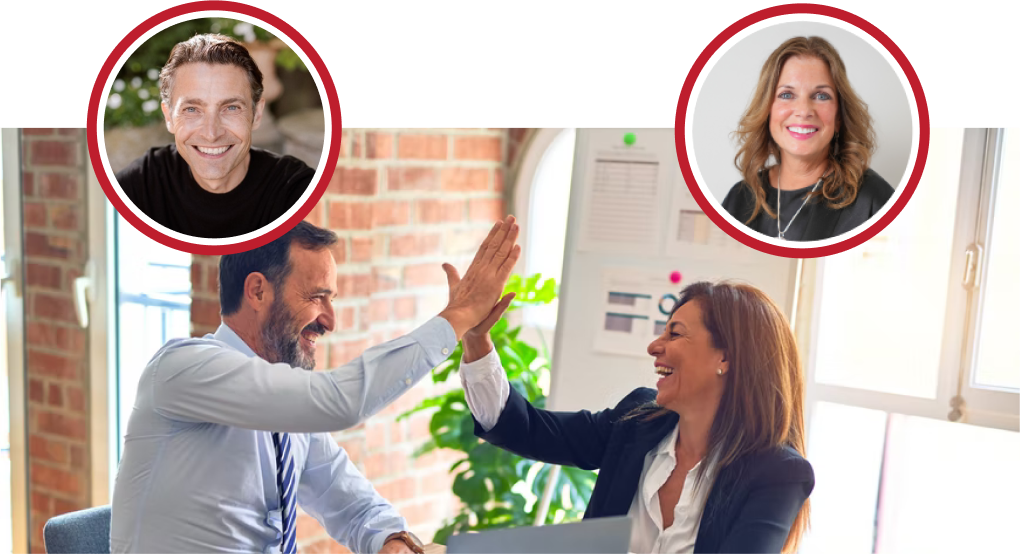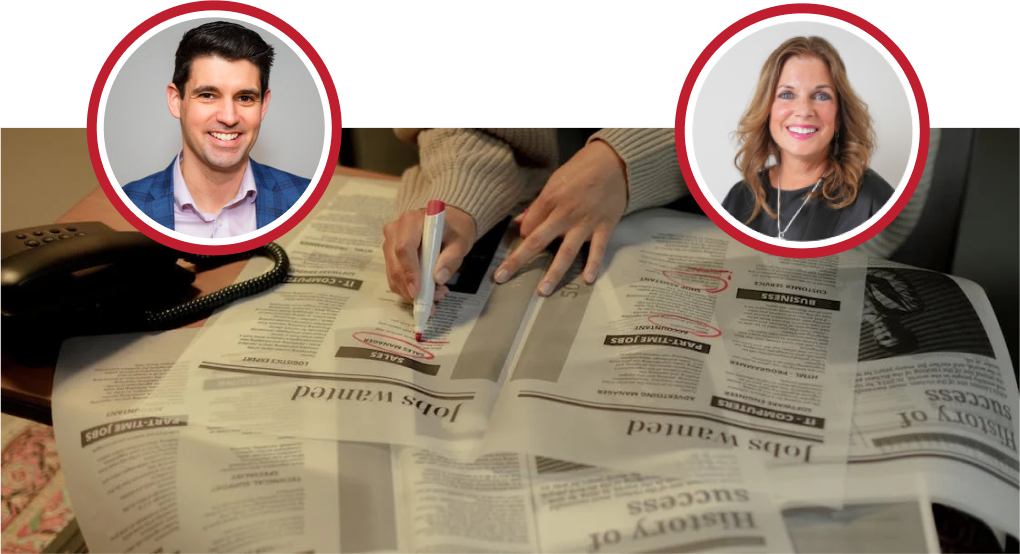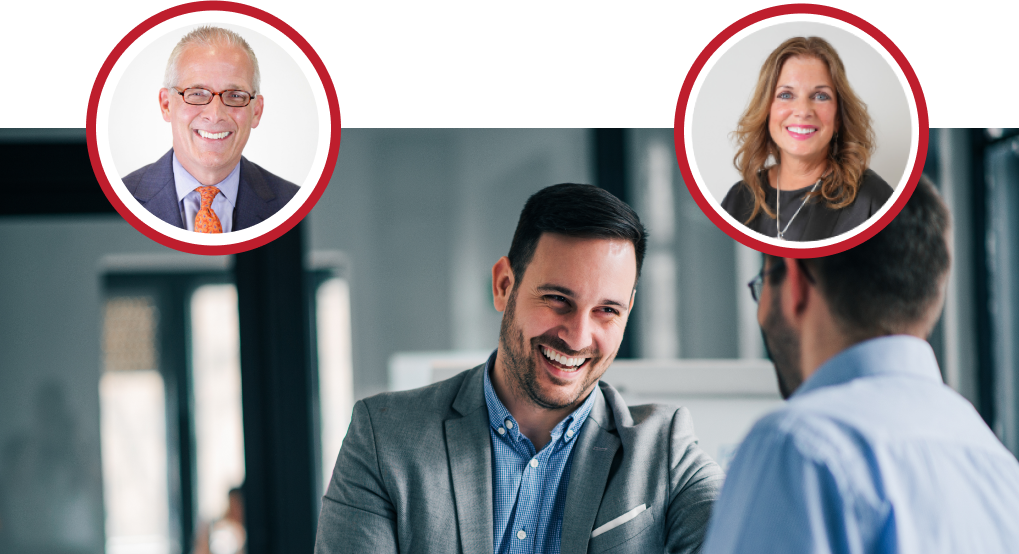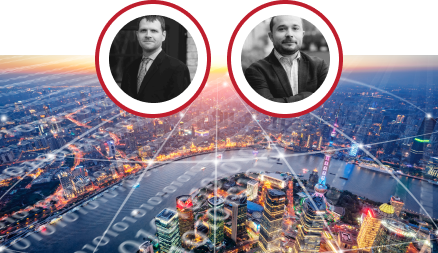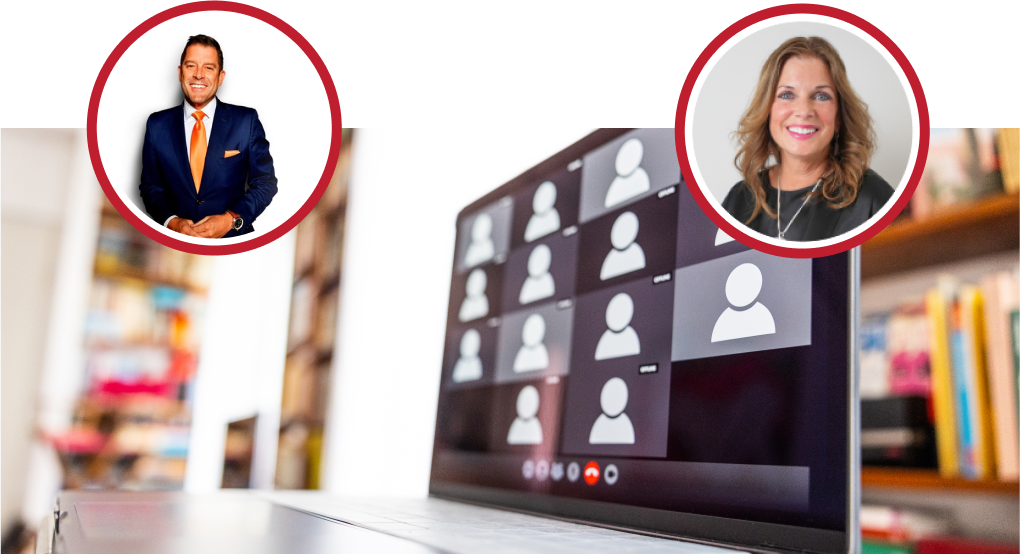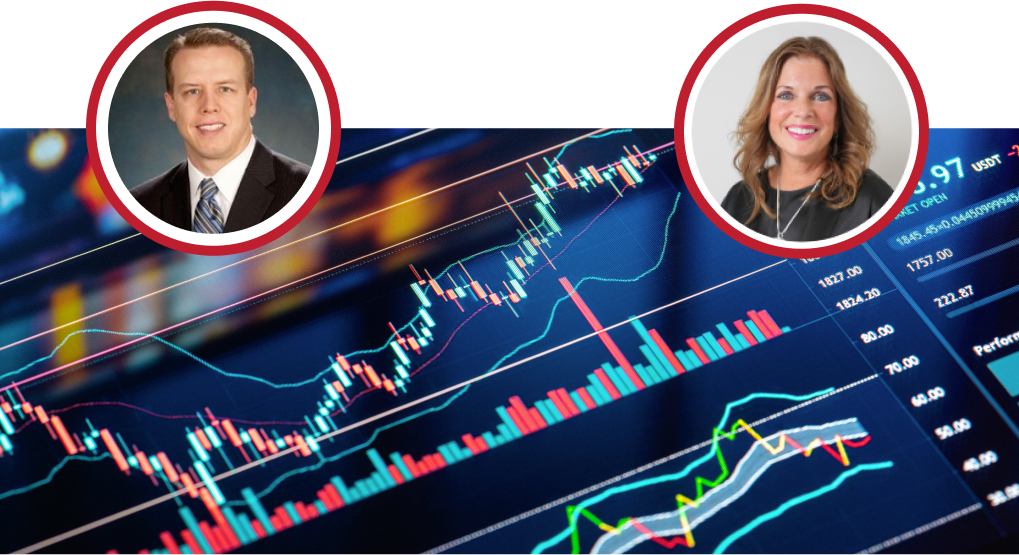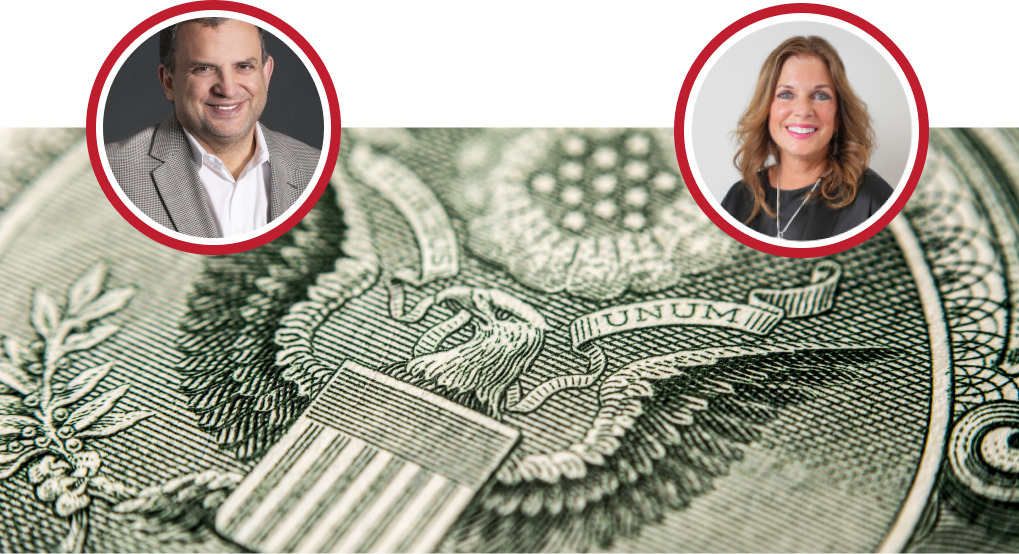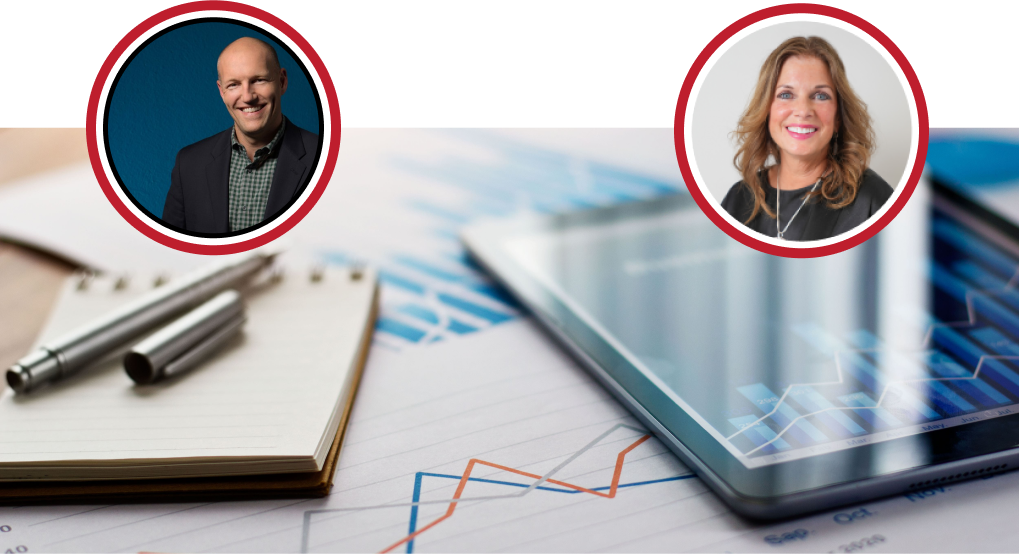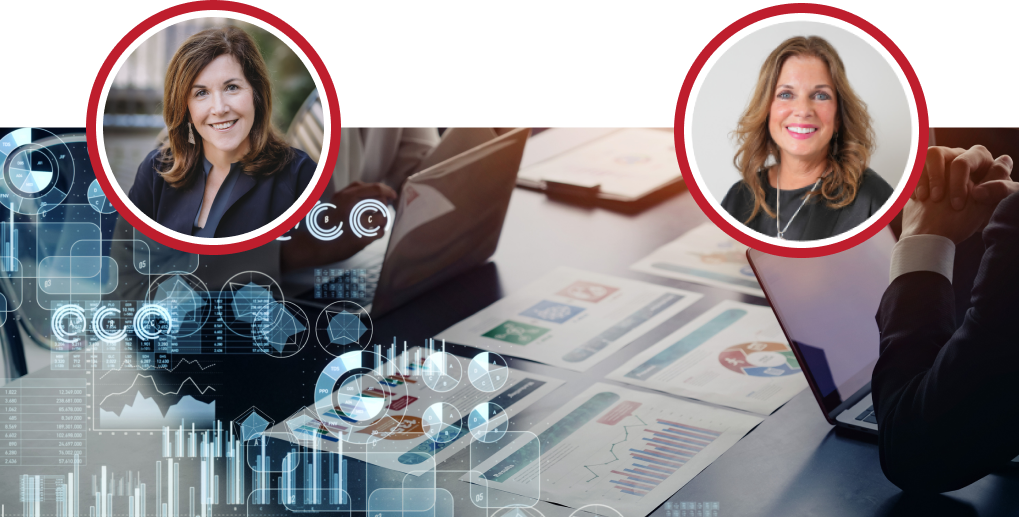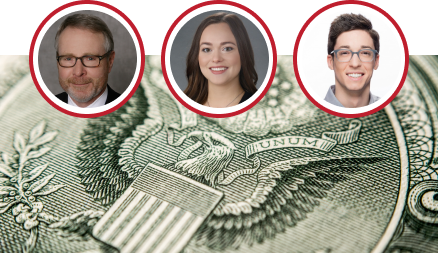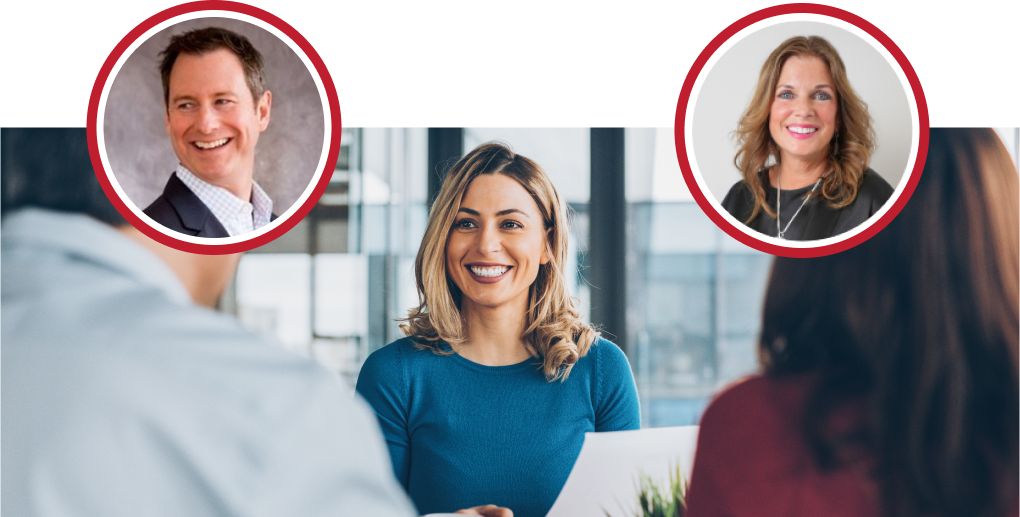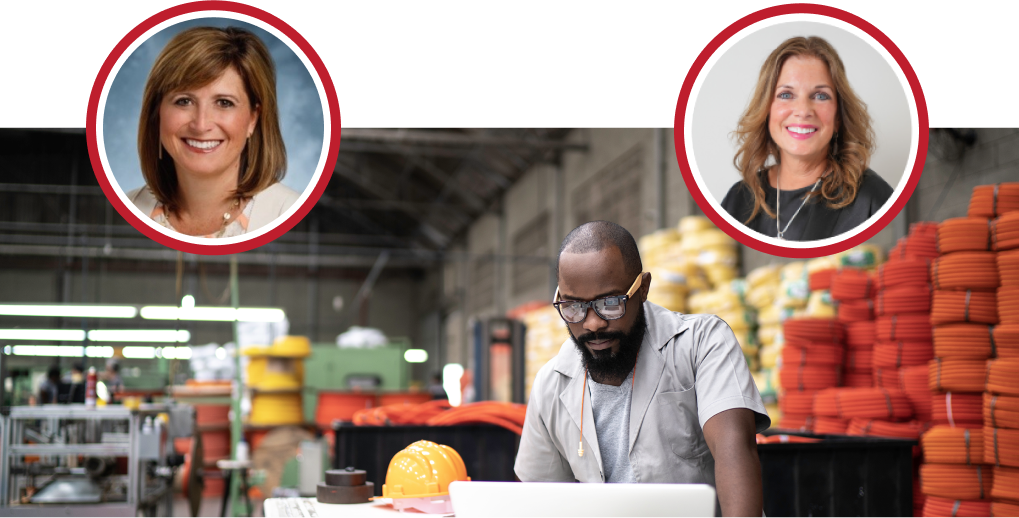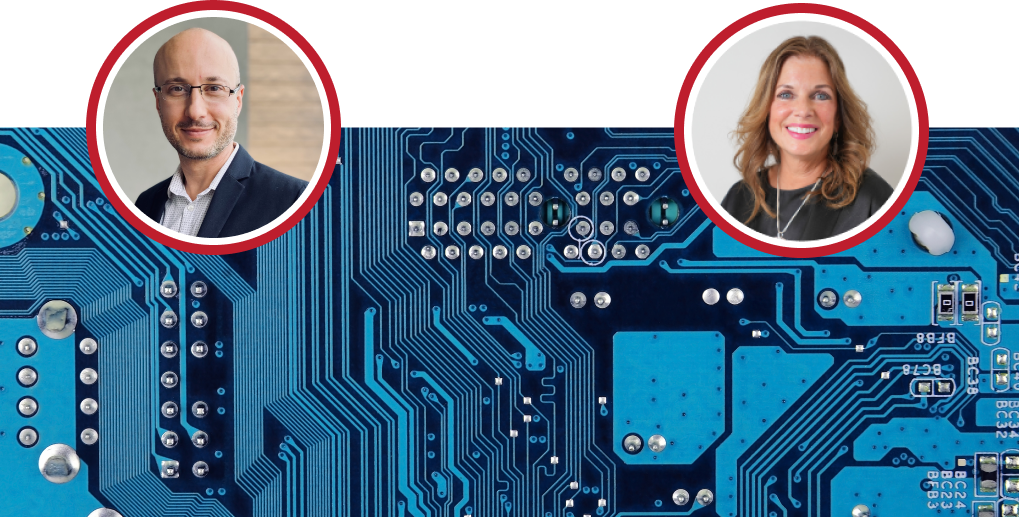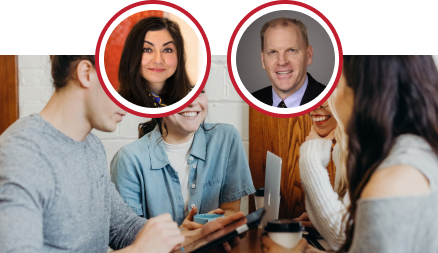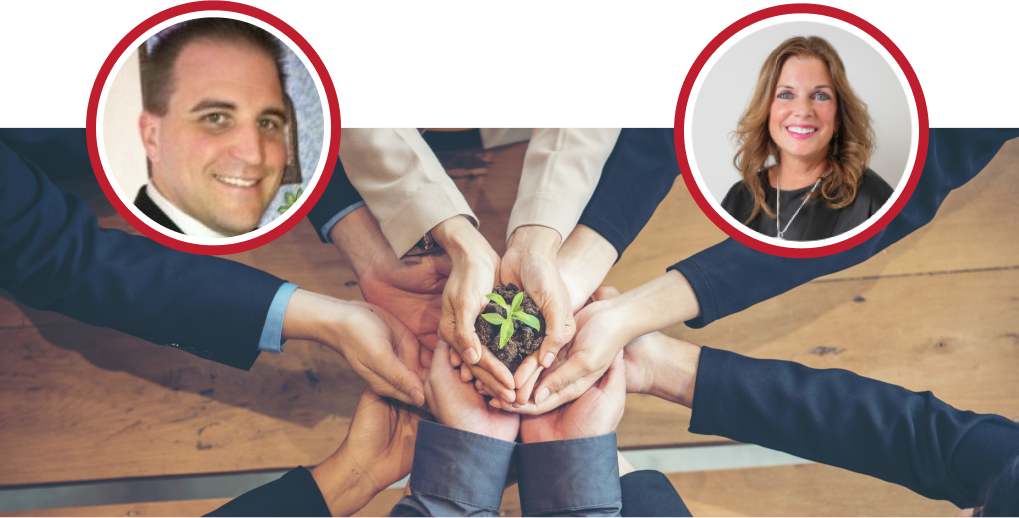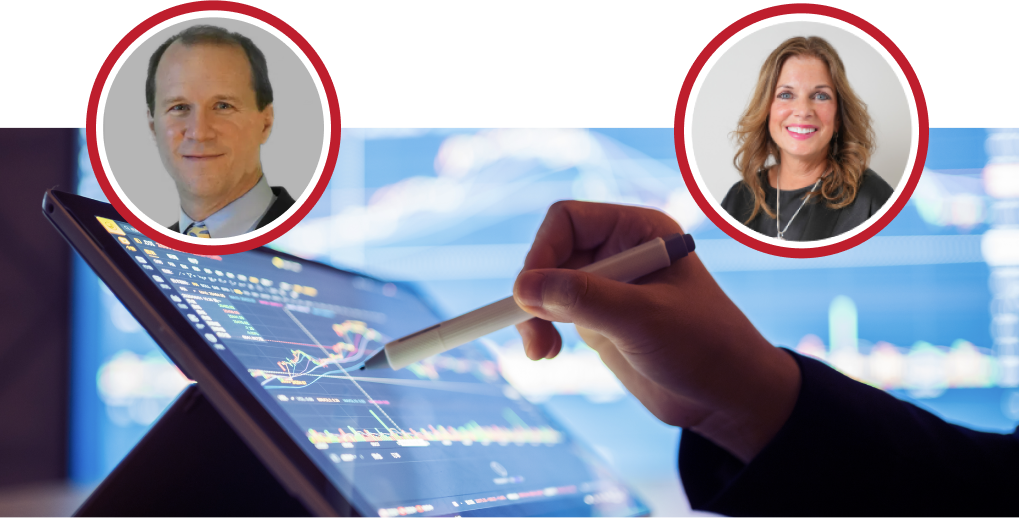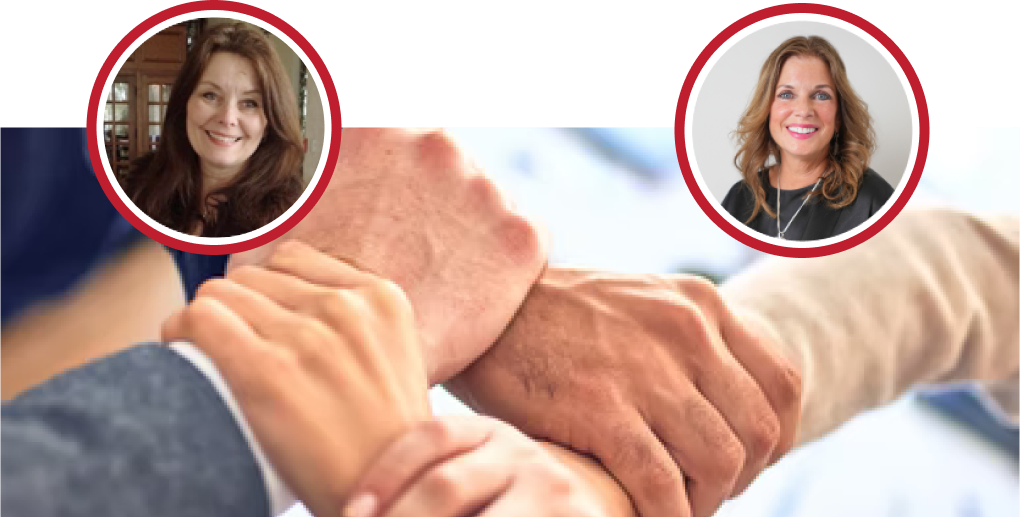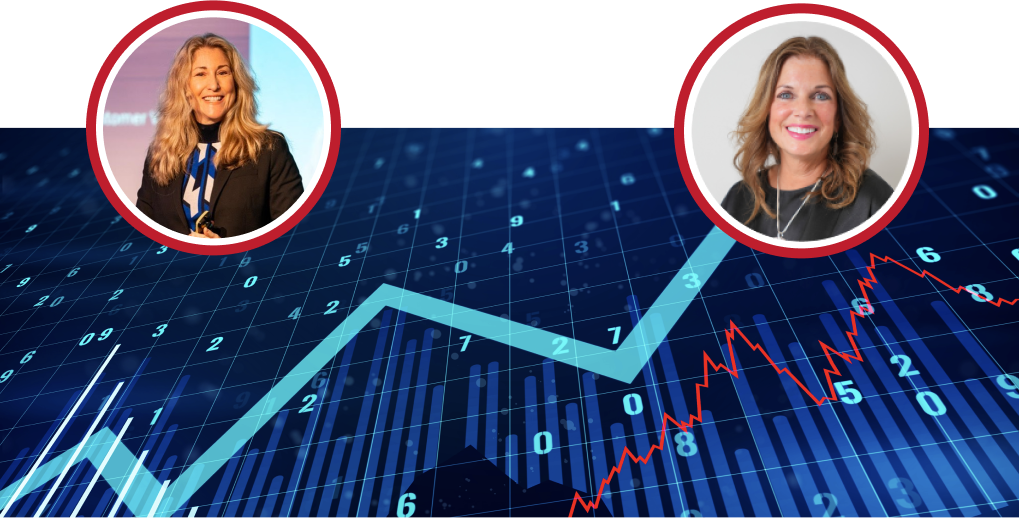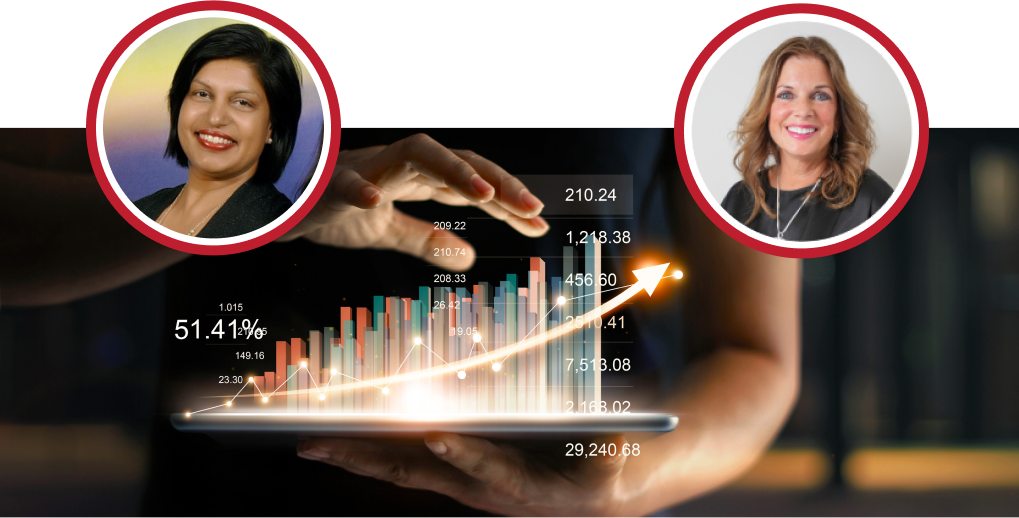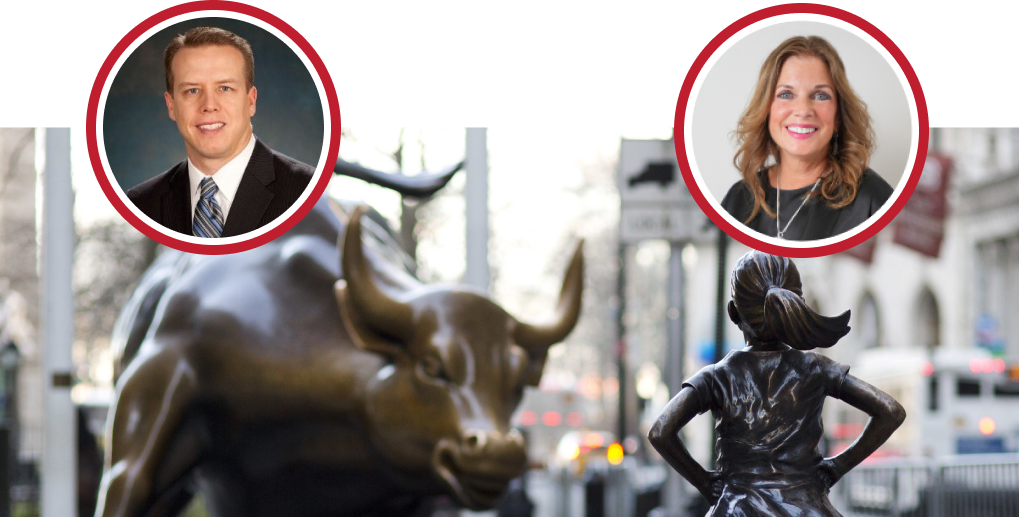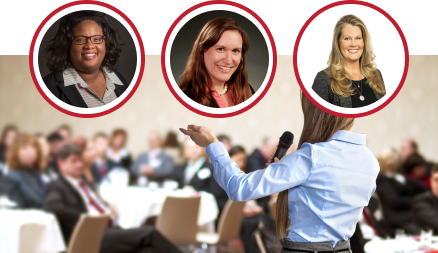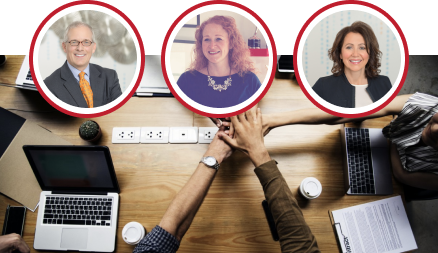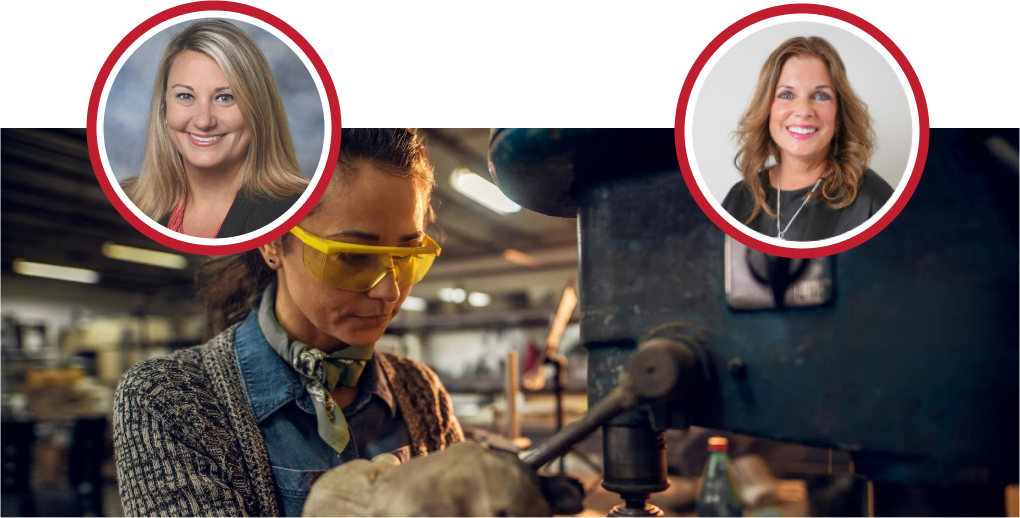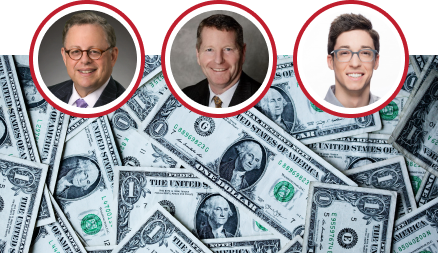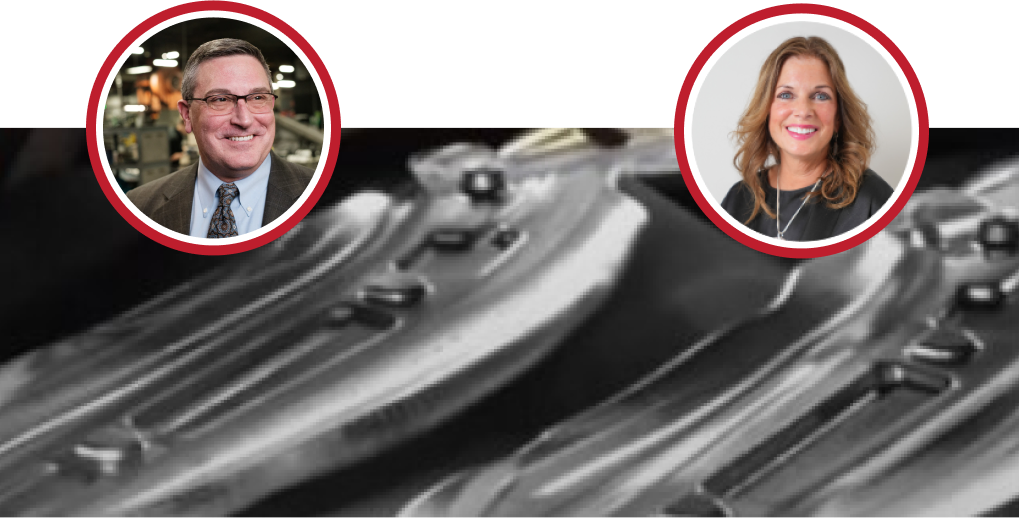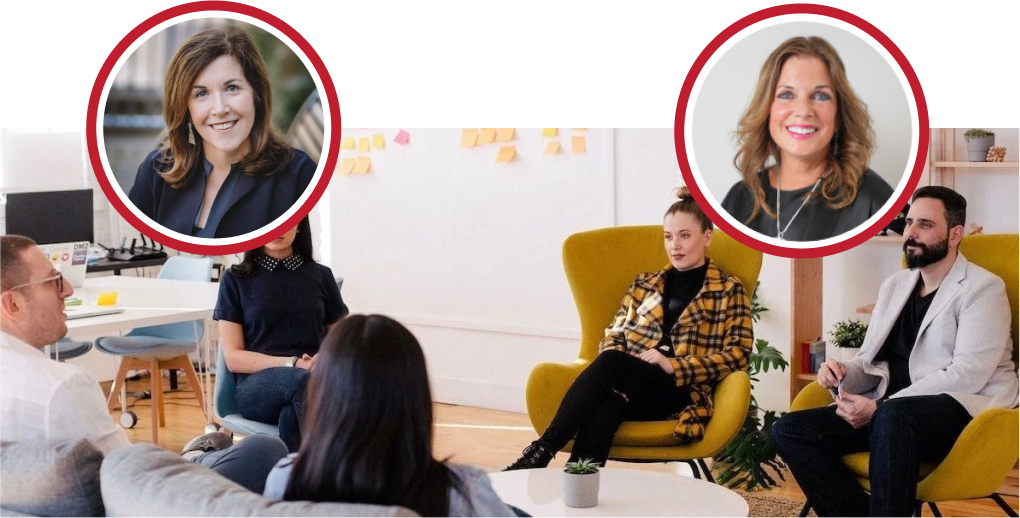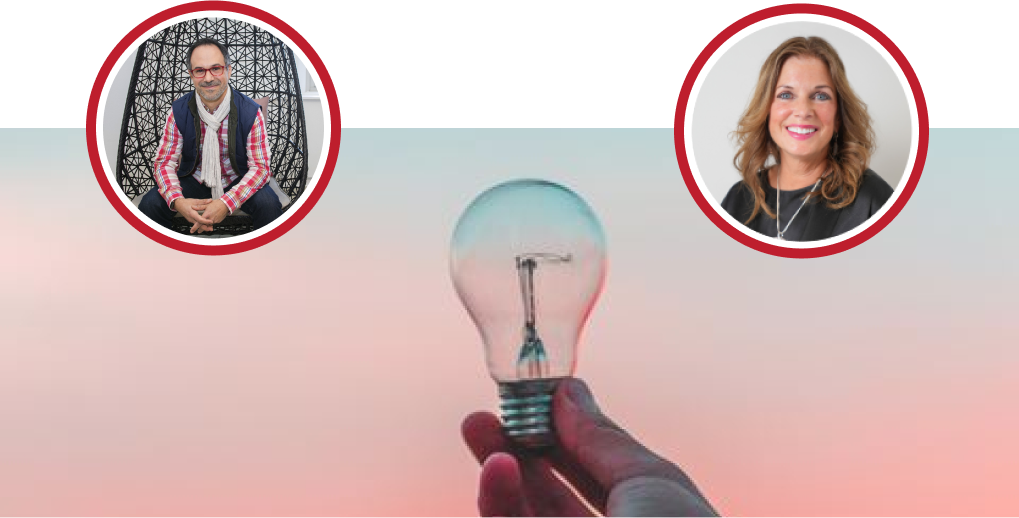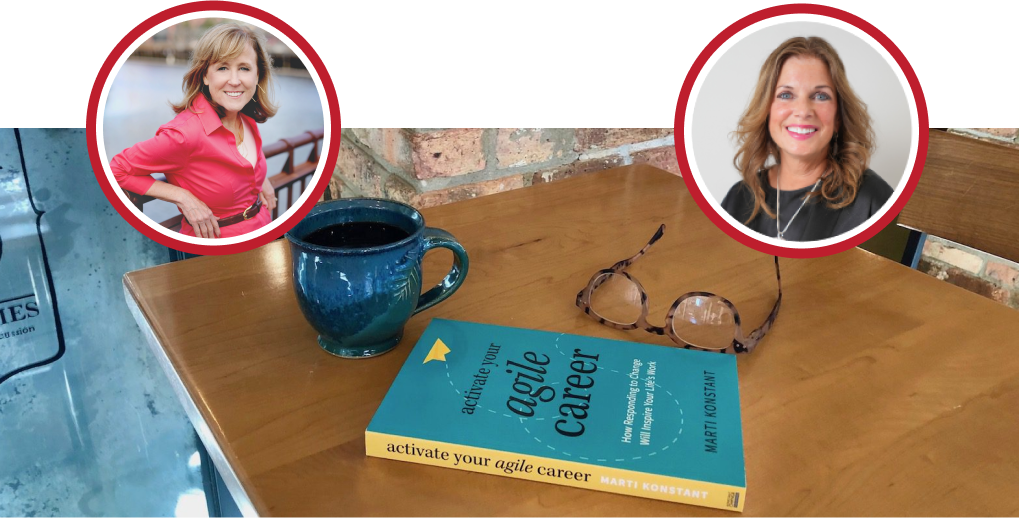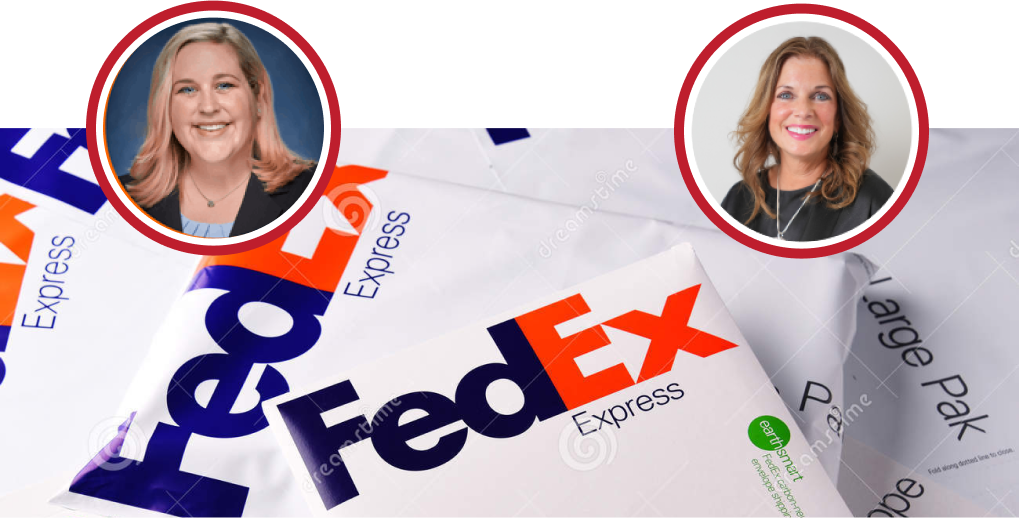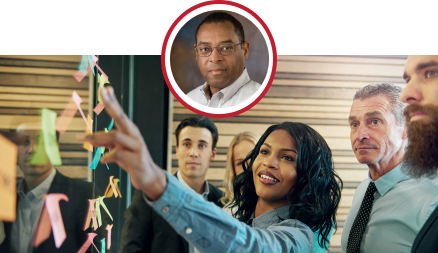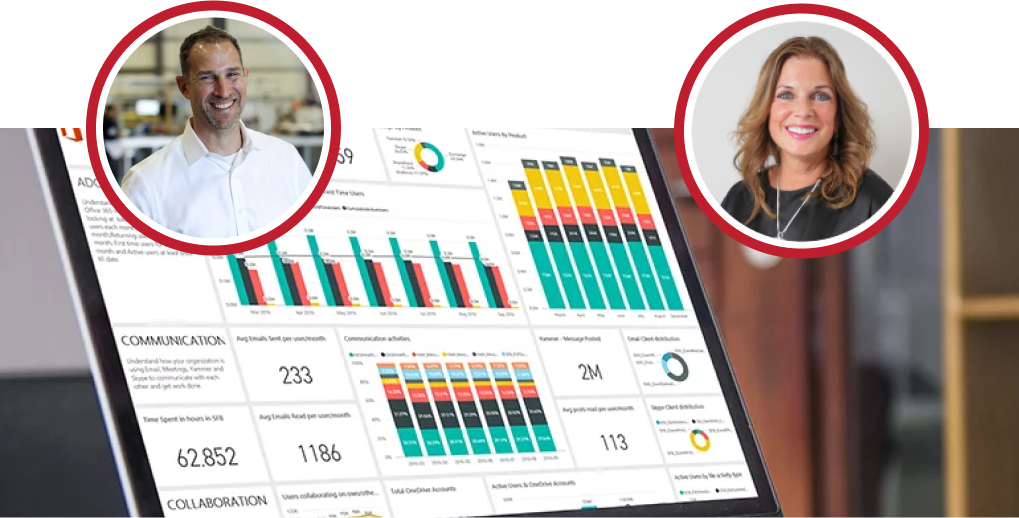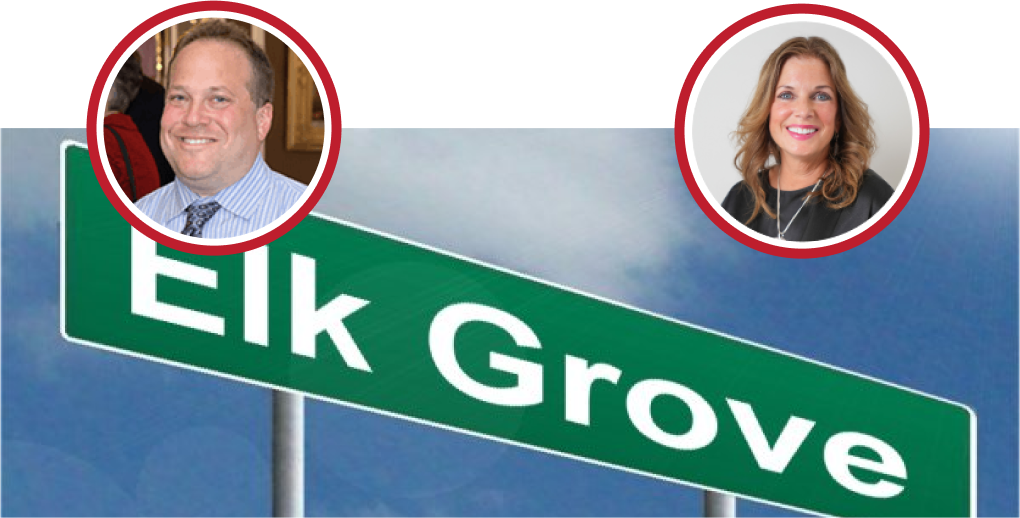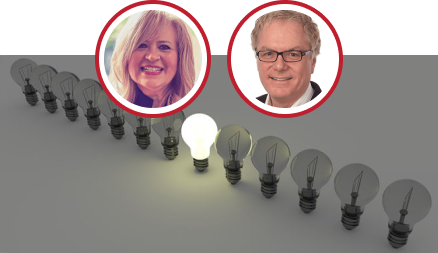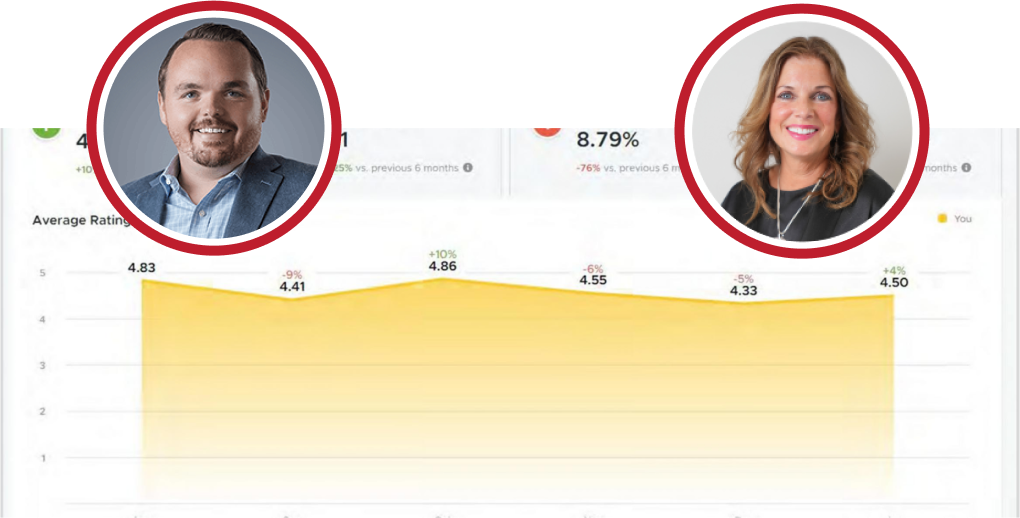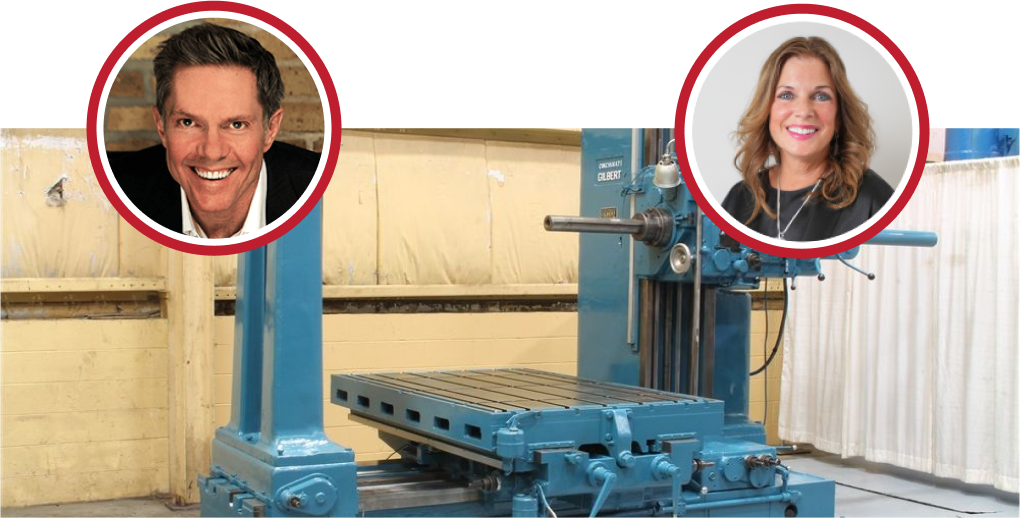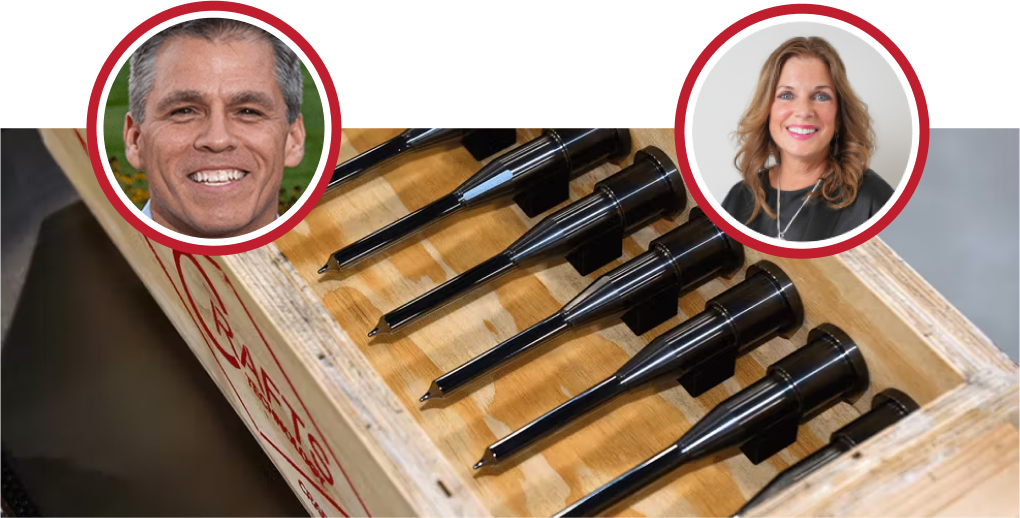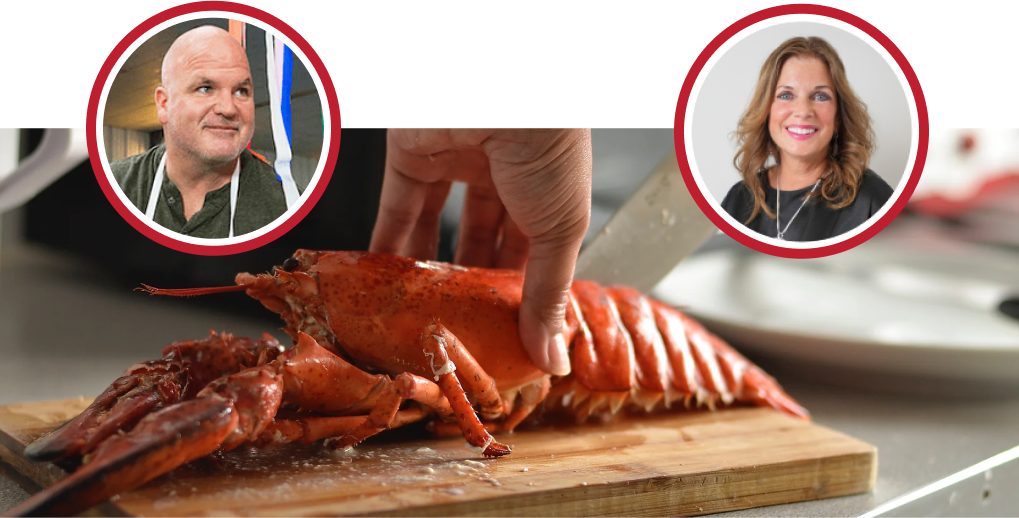Mark Murrel: Well, we’ll go ahead and get started.
Lisa: Today, so welcome everyone to “Business as Unusual,” where we’re speaking to badass industry leaders on how they are thriving and surviving in our current economic crisis. I’m Lisa Behning, I’m one of the account managers at Red Caffeine, and I will be your moderator for today’s session. We are excited to have Mark Morrell join us today as we talk through stories of inspiration and innovation and hopefully inject a little bit of positivity into what has been a very interesting business climate during the 2020 year, so as we get started, a few quick housekeeping things we do have everyone on mute for today’s session. So, please do use the chat feature as a few of you already have to check in, or you can also use the QA function at the bottom of the screen to send questions that Mark will answer at the end of today’s session as we go through, please also note that a lot of great content is going to be shared today, so we are recording today’s session that will also be sent out afterward, and you’ll be able to access it on our Red Caffeine website. So, stay tuned, take notes, and get ready for great stories of inspiration and positivity; with that, I’d like to go ahead and give a shout-out to our restaurant for today. We do advertise the first five people who register for our webinars do get free lunch on us, so we had a check-in from Dinardi’s pizza in Lake Bluff, Illinois, as well as the Asian Cafe in Loveland, Colorado. We know a few more people still need to order their lunch might be delaying it for a little bit later today, but we look forward to seeing those, and Kathy, I see you’re eating from Suzette’s Creperies in Wheaton, Illinois, so sounds delicious, yeah, one of my best.
Kathy: Home businesses we frequent, at least once a week. So, excited to be back in Chicago to give my local restaurant some more love. Perfect well Kathy, I will tune things over to.
Lisa: You, for those of you who are new to the Red Caffeine family, Kathy Steele is our founder and principal, so good morning, Kathy, and take it away all right.
Kathy: So, as Lisa mentioned, I’m Kathy Steele with Red Caffeine, and we really just build and execute growth plans, and I’m so excited to introduce my friend and badass boss Mark Murrell from getting main lobster really excited to talk with him today, and so Mark tell us a little bit about getting Maine, lobster in your and your overall business. Yeah, well, first, thanks.
Mark: Thinking of me, I’m excited to share what we’ve been going through in a nutshell; we deliver Maine Lobster and seafood from Portland, Maine, to any doorstep in the United States, and sometimes beyond that’s in the plan to have that be more than sometimes really focus on the net customer experience, so we try to procure and put things together curate experiences that will bring some joy to families around the dinner table one of the things I’ve always understood is that a lot of our fondest memories food is involved so lobster is one of those types of food that can really help elevate and upscale any dining experience. So, wow, yeah, we’ve been, yeah, you’ve been.
Kathy: Doing it since 2010.
Mark: Right, you’ve had the direct experience, so yes, this is our tenth year, and right on the wharf that’s what you see behind me, and yeah, well, I mean just It’s just such a.
Kathy: Pleasure to have you on today, and I am excited to talk about your business and what’s going on right now and how you’ve been impacted by the current economic conditions, and so we’ve promoted that you just have this explosive growth in the past few months, but I’ve known you for a bit of your business journey and so talk a little bit about how this is this impact has been and tell us a little bit more about what’s going on right now, yeah well it started.
Mark: Mid-march, and I have a finance advisor, and she said we have to spend our time today having the difficult conversation about what are you gonna do and because you’re probably gonna have to let people go you’re gonna have to cut things back you’ve got to figure out how much time you have before you’re really in trouble all those things and I said yeah we should go through that exercise for sure, but I have a feeling that that’s not going to occur for us, and we’re not going to have to make those decisions and I said that because I started to see an increase in traffic an increase in sales abnormal sales on the weekend prior, so I think it was my It’s interesting because it was my brother’s birthday that I declined to go to at his house and I just said I don’t think we should be doing that considering what’s going on, and then we literally got locked down a couple days later so, wow, yeah so It’s like let’s do it because we should do that, and I need that and that’s why I have you but at the same time I don’t think It’s going to go that way, and I was I was right, and It’s funny what we’re experiencing today is what I envisioned, yet I didn’t want it to happen this way I’m grateful that it did that this is the ripple effect I’m having, but we’re where I wanted to be which is awesome it stinks that It’s not happening for everyone, and we do think about those that are having a very difficult time right now, and really we’re just every day grateful that we get to provide some amount of joy to people during the strange time, yeah.
Kathy: Mark, it is. I’m glad you both agreed to be interviewed and are talking about sort of that dynamic of success in a climate where many people do not have things. So, talk a little bit about the feeling of seeing your business go like this, and then other businesses are met with the faith that you were discussing earlier in March that you could have potentially been in as well, yeah, and it influenced our communication.
Mark: In the very beginning, because you have a feeling that you’re gonna have a positive benefit from this, and you don’t want to you want to be advantageous right but in an ethical manner and luckily for me right I’ve been involved in until which is an organization that focuses on empathy, so I knew that, but I’m a business owner right, and I just acquired another business and this is what I’m supposed to do but.
Kathy: This is a time that’s.
Mark: Unprecedented, I didn’t know how to act, so I got the help. I said that to the team I said listen, It’s likely, this is going to occur, and we’re going to be very busy, and this is what I desire for us and you and me and everyone right because we could serve more people, yet we have to be sensitive, and we have to take care of ourselves so, so it was very tricky in the beginning, and so I just said hey we’re here we exist I did a lot of video updates, and things like that and but the mentality of it was all right I gotta protect my team I gotta protect the business, so I have my face mask here that It’s lobsters, so you can see it of course.
Kathy: Everybody masks everybody.
Mark: Gloves, try to keep as much distance as we can, we’re funneling volume to other partners that we have so that we don’t get too overstretched, and we’re saying be well be safe like 85 times a day, and which is an interesting habit that I have formed and others have formed that I think will continue for quite a while which is a great habit, but yeah, in the beginning, it was difficult and then all right we’re now we’re in the middle of it where everyone is uncertain, so let’s do our thing and just be ourselves and do what we do in me being chief curator I got to go out and procure stuff that you the consumer I believe would like because you have to wait in line at the grocery store and then when you get in there what you want is not available and then meatpacking facilities are shutting down and all this stuff, so I’m like.
Kathy: All right, so now this is occurring, so now I got to figure.
Mark: Out of this, we’ve been selling out of stuff every single day. It’s been very difficult to manage inventory because the volume is It’s sometimes ten times more than normal but, on average, five times more than normal; wow.
Kathy: Still incredible five times, yeah, and one curious thing was how there is a.
Mark: Major paradigm shift within the crew, so prior to covid on a normal non-holiday week 150 orders going out the door, is it is a good day, but we have some days where there’s only 35 or 40, and then suddenly we’ll do 900, and we’re like oh that wasn’t so bad in a single day and if we do less than.
Kathy: 400. That’s like, wow, would be done at.
Mark: Noon, and that was pretty quick because on the fly, I had to figure out how am I going to manage this volume I can manage and plot; however, if more and more people are just going to be coming and coming, at some point I have to cut it off, and we actually had to cut it off for Mother’s Day, and I hated to do it because there was all this momentum built there’s a lot of expense to building momentum and then shutting it down and then trying to rebuild it, so I knew it was gonna cost us in a few ways one where you disappoint some people that were like wow, I found a place they could do something special for my mom, but they won’t let me have it delivered this week, so that was difficult to do and not something I want to do again, so now I have the challenge of all right Mother’s Day numbers you had to cut it off you probably missed out on x so how do you figure out how to execute on x the next time that potentially will happen, yeah.
Kathy: Who knows? It could be next week; right yeah, Memorial Day is coming up. People might be wanting to do something special then, too, right so, It’s sort of interesting do we’ve been sort of sharing this Harvard Business Review report about organizations that do offensive and defensive sort of moves in order to kind of protect their business like you technically could make some really challenging just or make some wrong decisions when you’re accelerating like this and placing a bet on a continuation of that accelerated sort of growth that you’re having so how are you thinking about some of the offensive and defensive moves in your organization that is gonna serve you six months from now a year from now since we see the.
Mark: Uptick it gives us a little bit of well it gave us a lot of opportunity to get creative with ad spend so in December I can spend as much as I want and not really have to be concerned, but it falls off a cliff in January for a couple weeks, and then you have Valentine’s Day, but we’ve never had the December is the only month where you have complete freedom to experiment aggressively to understand you got cost per acquisition and lifetime value so what’s a CAC that I’m okay with if It’s a brand-new person right I’ll pay more for a brand-new person because they’re gonna order again, and they have a certain lifetime value, so It’s figuring that out, so we’ve been able to experiment with that, and so I believe that we now because we have so much data that we can control the volume most of it right what we can’t control is the organic or the viral moment and for example there’s a company that we where we procure most of our lobsters from they went viral on WeChat and literally did 2500 borders placed in 24 hours, and they’re fairly new to e-commerce they’re more of a wholesaler, and I was like wow that is wild we need to figure out how we can throttle and organize this because fulfilling your 2500 orders and then the orders that we have and then all the others because we’re managing two brands of our own and a pie company, so I was like all right figure this out we figured it out, but I think that’s the biggest thing is you could because cash flow is great, so you could get a little bit too aggressive, but It’s an awesome opportunity for discovery and being able to figure out hey this is what I’m willing to do, and then I can reduce my cost here, so I can do a little bit more and because we all should be in a business like mine I really need to be spending more to capture more money to catch new customers because that’s once they experience us once right we take such good care of them that we’re going to have them for quite a while well I definitely agree that that’s relatable to any business.
Kathy: That, that’s relatable to any business acquiring a new customer is much more costly than retaining a customer so, but I think you’re a Master Marketer, and you’ve got some really great thinking around direct Marketing and have just probably been able to scale some of the theories that have kind of been in play in your business right now, but I do think It’s important to know like being okay with being with having some level of success right now because I believe that your organization and others that are also having an opportunity to capitalize are gonna help us all pull us all up and pull us out through the next six months a year but also the this when you see a lane open up that ability to test in that lane this is like an unprecedented time just to do some testing in a lane, and It’s pretty cool that you’re leveraging that totally right now yeah we’re able to test us.
Mark: As well and introduce people to different things and outside of brand that we typically wouldn’t offer and so, that’s neat yeah, we are.
Kathy: I think we’re seeing across a couple of our clients as well just a better understanding of putting something out there because we think there’s an opportunity, and being able to see that that work is so super exciting right now, so let’s kind of step back the big picture, I’m gonna let I have Lisa like bring up the visual you’re I want you to talk us through your Jerry Maguire moment, so my favorite movies, so yeah.
Mark: One of the best, yeah, I don’t know what I was working on at the time but one of the things that I have felt for quite a while is that the food service and restaurant industries are pretty two-dimensional Grubhub came in and said hey let us help you deliver a different kind of experience and that’s cool, and you saw what that did I mean look at all post mates and all of them right and then hello fresh and blue apron come up, but those are not restaurants could have been doing that already, and they weren’t food service has so many customers right, so they have the corporation, but then that corporation has so many customers in food services having a very difficult time right now because everything’s shut down, and so they have all this product and nowhere to know what nothing to do with it right, so there should have been mechanisms and programs well into play prior to anything like this simply to be an innovative robust out-of-the-box type of servicing I’m always thinking how can I serve you better in a different way more and that’s what inspires me to create new pathways and food service restaurants grocery are all programs that we’ve been working on in engineering for years we’ve even implemented a couple programs to help grocery and even suppliers move have a mechanism of moving a product from point a to point B and skipping everything in the middle, so I think this is an amazing opportunity for the Jerry Maguire’s of the world to really look at sit back and observe and what’s missing and can I design something to fill that gap it could be outside of food it could be anything and I mean look at zoom right look at what zoom did and then look at all the other things that are going to come from that as well, and so I’m pretty excited about what innovation is going to we have no I there’s stuff that we haven’t experienced that is going to be born out of this and that’s what I’m super psyched to see, and It’s going to be the Jerry Maguire’s taking a risk risking it all and going through a lot of hardship but then winning in the end and in a big way yeah, unhappy.
Kathy: Who does not love that story? I think we see that, too, organizations that are a being able to retool some of the things they currently do to serve a need. It’s just happening in little micro costs all over the nation right now. That’s what that’s our American way of being ingenuity and what is that?
Mark: Word ingenuity. Yeah, so yeah, It’s just exciting to see what you’re so talk a little bit more about that disruption to the hospitality industry I you placed some It’s been interesting, so you talk about risk I know you took some great risk in capturing more of the supply chain with your that recent acquisition you made so talk a little bit more about that because I think that’s along the lines of where other businesses are needing to think in terms of how do they protect their sourcing strategy, and so I’ll let you talk about innovation yeah I mean one of the one of the toughest things in, so I designed the business on purpose to be completely entirely virtual, and then we started procuring some value-add products ourselves, but we always had fulfillment done for us and always had great partners, but I wanted to really dive deep into how do I have all this information how do I now start engineering experiences at the absolute right price that shows tremendous value so that I can capture even more people to serve and implement all of those B2B programs that I want to do to help grocery food service and restaurants serve their customers in a new and unique way, so an opportunity came in front of me that I discussed and pondered for quite a while and then finally just said all right I’m doing it didn’t know how, but I did it and had no idea that it would be the absolute perfect time to do it, but now we’re right on the wharf we buy direct so that business used to be all online retail or actually catalog retail from member catalogs, and then it pivoted when the internet hit and started doing host sale more, so I was like that’s perfect because I want to do more wholesale, so I’ll have all this learnings and I also want to get closer to the product and the packaging so that I can improve that and lower the cost so that I can provide more value and the only way for me to do that is to get as close as possible, and now I’m as close as anyone could be, so It’s awesome plus every morning when I go to work I have a beautiful view so that’s a nice little benefit oh, yeah.
Kathy: Yeah, nothing like the ocean.
Mark: Yeah, totally and, so yeah, it was a massive risk, and I didn’t know how I was going to pull it off, but I just went anyway. I typically do that. I’ve done that before, and my attitude has been well, Mark, despite what’s running through your head, it seems to always work out for you, so I’m not gonna curse but to screw it and let’s do it, and yeah and so you pick the perfect.
Kathy: Timing, December really to take on a new business venture one of your busiest seasons, so maybe it did. It was a good time to challenge yourself because you didn’t even know it was coming three-four months from, and so you at least got a chance of being baptized by fire and that in that initial first stage of that acquisition and takeover, so I would love to just hear you talk about some of the challenges, so you’re growing, and I don’t think until you kind of talk to me a little bit about this how do you handle recruiting and safety and all the things that go on in trying to scale up during a time like this.
Mark: Family and close friends of the family. So, college kids have been godsent and that’s brie and Hannah right there they’re pre just graduated and then Hannah’s got a one more year I think, but my niece is working my brother’s always worked with me, but my niece is working with me now and then Hannah’s brother just started working so in the beginning it was super-duper hard because we didn’t have them we had Abby, my niece and maybe a couple of others, but I was doing a lot of hands-on work, and then It’s like all right we just need bodies but very cautious to bring in anybody so only people that I trusted that would be honest with me with how they’re feeling health-wise and that would adhere to all of the CDC suggestions of being safe at work, so It’s worked out we’ve had everybody’s been healthy and everybody’s tired because they’re working hard, but everybody’s healthy, but that’s the most difficult thing because the things are going to open, and we have this wholesale business that summertime is its busiest time now because Maine is requiring everybody to quarantine for two weeks if they come here from out of state I don’t really foresee us having a lot of tourism however a million people live here, and they’re going to want to do stuff, so Mainers are going to finally get to enjoy their state in summer time which is nice, so we don’t we currently do not have the ability to service our summer wholesale business like we have in the past, and so we are saying no for now until we figure something out, or we’re telling people that if they do want a bunch of lobster they have to come get it instead of us delivering it because we literally can’t be without the manpower for two hours somebody doing a run we even have a luckily I’ve been able to implement a system where all the lobster is pretty much coming to us so that’s been super helpful, but the value add products very difficult, so a person has to go sometimes get that stuff, but you need that person because you got boxes to pack, and we’ve committed to writing notes in every single box so that adds time and despite the volume and so yeah that’s been a challenge for sure, and I hope I can retain everyone but summer’s coming up and if they work in the restaurant industry, and they’re a waiter waitress or bartender they’re gonna want that money right, and we’re not we’re not in a position to compete with that because they make big bucks.
Kathy: Yeah yeah, where we’re all in this really unique position now with unemployment, being more advantageous sometimes than actually working, but It’s interesting. I want to like just key on the fact that you’re saying you’re not you’re gonna slow the roll, you’re not going to go after that opportunity because you just can’t staff up that we’ve heard that over and over again, especially like during low unemployment, so I’m just it is interesting to hear you say that during times where there is available talent, and there will be available talent is there any thought to just how could you go after that thought that workforce.
Mark: Well, I one I communicate with the core group and try to get a pulse on how they feel right because then you’ve got to consider that like your key people how do they feel if somebody new walks in right that they don’t know, and maybe they would trust them if I know so that’s a consideration as well luckily everybody on the team works super-duper hard, and we’re doing it, and It’s becoming easier because we’re implementing things daily to make life easier and like so much goes into shipping a lobster from Maine to Los Angeles so much It’s and if It’s live lobster right so much more that lobster every single lobster has to be looked at inspected before it goes in the box every single one because you can’t have a dead lobster right so imagine that you’re shipping 900 boxes in a day and let’s say 450 are live lobster that’s a lot of time now they’re fast right, and they’ve probably done a little bit of work prior to but still every single lobster is inspected saying yep this is primo it can make the trip let’s do it, and so we’ve gotten really good at doing that at scale now where we’re at today is awesome, and It’s where I wanted to be, but It’s only scratching the surface of where I really want to go, so we’re actually I’m actually already thinking that we’ve just moved into this new facility, and we’ve already outgrown it oh my goodness, yeah, which it stinks to say that, so I’ve started passively looking at all right what am I going to do and where are the opportunities well I’m going to guess that there might be some real estate available in the near term so totally I just a quick question one more like specific question about.
Kathy: Workforce safety, is there anything different that people that are working with food have to be considered in their facilities? We’re seeing so much great content come from some of our manufacturing clients around how they’re protecting their workforce, and It’s interesting because as other businesses are returning to the workplace, they’re hungry for that shared experience, yeah, the.
Mark: The State’s been great with communicating to the businesses on hey here print these out and put them all over the building and communicate with the team about these are things to know these are the things to do these are things to look out for ya, so the state’s been a great partner with that, and I often commend the state for taking early action we’re getting a little bit of restless, but we’ve only had 66 deaths, and that’s incredible when you look at places like New York and Boston that are very close to us and experiencing something very different now obviously we’re well spaced out [Music], but the only difficulty is just having to remind people if they don’t have their mask on if they don’t have their gloves on in the beginning I was constantly reminding, but after a while, it just became a habit, and then I went out and scored some fancy Gucci and Louis Vuitton masks.
Kathy: Well, you’re gonna have one for me, so just yes, I have one still in the packaging, so i.
Mark: Will, so that’s been kind of fun to like give people a little bit of style.
Kathy: Yes, I’ve been thinking about that quite a bit, so hey, one question, like the personal question, I see a lot of questions coming in from the attendees, and I just want to ask you a little bit about you mentioned the Junto Institute, and we both have had such a powerful experience being involved in the hotel but can you talk about anything that like one or two things that you might have learned about yourself during this time that might have surprised you.
Mark: Calmer and I didn’t notice how calm I had become until recently and I and that’s interesting because I’ve had to deal, and I’ve lost my cool a couple times right this whole inventory thing is just impossible I shouldn’t put that out in the universe, but it just feels impossible to manage It’s our current system is not working, and I’m part of the problem yet figure it out, but there’s been every day I mean right before I came here I got a call between a supplier who was quite upset with how he was someone on my team spoke with him, and I was just like I wish it wasn’t today that I want I need to handle that, but I was super calm on the phone when that person was quite upset, and so I think that’s one of the things I’ve noticed the most is how calm I am with all of it, and I’m still getting acclimated to the change I remember when I first got into the lobster business and our first year was massive growth right, and I was like oh my god what did I get myself to so my mind around numbers it took a minute right to figure out like the numbers of it all and the cash flow of things and so now with what we’re going through now I’m going through that same learning thing again all right Mark your brain is about to make a change you don’t quite get it yet so what do you have available to you luckily for me, I got all kinds of resources available to me from brain capital so that’s one thing that’s occurring with me right now is the numbers have changed right so that changes a lot, but I haven’t experienced what we were going through right now luckily I got help right, so I become a pupil which I’m always a people but so well that that was a life lesson that.
Kathy: Well, that was a life lesson that took me a while to learn is to ask for help, and once I started asking, it just allowed me to grow so much faster because I wasn’t afraid to ask anymore, but I think that was a tough thing when I was younger in my earlier career so at least there’s a lot of questions that have come through you want to like start to give Mark some other so.
Lisa: The first one will be an easy one to work on. We have someone who asked a little bit more about what the Junto Institute is, so maybe you could give us a deep recap of your experience. What is Junto? How It’s affected you? I’m awful.
Mark: At describing it, but I can share what it does for me, but basically, so It’s like B-school, but the core of it isn’t is empathy, so your empathy has been something that I have always put a lot of weight into because I’ve seen the value of empathy, and it really drives a lot of our engineering and design of products and communication, but I don’t know It’s just an amazing organization that allows you to become a great leader not through a book but through unique experiences other people in this core value of empathy and emotional intelligence and yeah, I mean I’m a different leader than I was when I started, and I’m a better leader, and I’m much calmer so yeah, I think, It’s like an.
Kathy: MBA in business while you’re running a business, so most of us running businesses don’t have that time to stop, and to take two years of college to kind of learn how to run a business and react to all the different evolutions that you face in business, but who into the sort of supports you through all those different life cycles but definitely founded on working as you’re on yourself as a leader in order to work on how you come across it to your employees and staff so well.
Lisa: Speaking of being a leader. The next few questions are about your team actually and Mark, you leading that team, so the first question is in such a vulnerable time when a level of transparency, or I should say what level of transparency, has been working to keep your team informed and understanding what’s happening in the business.
Mark: Yeah, in the very beginning, we were doing daily huddles, and the transparency of it is every day is new, right we really are in true uncertain times. Will we be just as busy tomorrow as we are today? I have no idea, and I’m just honest about that, and I have a lot. I’d like to believe that I have a lot of humility, and I hope that the people that work with me agree with that, but so that serves me well, so I’m okay with making mistakes, I’m okay getting my hands dirty, and I think we’re all in this together to be cliche and that’s kind of my attitude and I listen and sometimes it takes me a while to accept and execute on what I hear or validate but right now my sole focus is on keeping my team protected and feeling well and feeling excited because we have this amazing I guess task but opportunity to serve people and bring them some happiness when they can’t go out and get it.
Lisa: And as you’re talking about your team and kind of mitigating those circumstances, there are two questions that were asked by our audience that are fairly similar, but really knowing you’re experiencing this monumental growth, how is your team feeling about it? And how are you handling the ups and downs? You mentioned getting them custom face masks, and Kathy, we are going to keep irking you to get that last Gucci one, but what are some of the other things that you’ve done to help mitigate how your team is feeling because obviously, going from 150 orders a day to 900 a day that’s a monumental task for anybody that one bite of an elephant at a time, so how are you helping your team with this? Yeah.
Mark: Well, as I mentioned early on the paradigm shift that occurred with them was interesting I created a incentive based upon units out the door which allows them to control the volume I implemented other ways for us to fulfill our orders so that we can protect us and so that we can get rest we throttle Tuesdays and Wednesdays, so we allow Monday and Thursday to be massive, and we throttle Monday, Tuesday, Wednesday, and I was buying lunch every single day for the past couple of months I’ve gone to I’ll buy lunch on the big days and I just listen I do I’ve packed boxes, I’ve taped boxes, I’ve moved boxes, I’ve done runs, a run is when we gotta go get product and I listen and try to provide what they need, I could be doing better for sure because I think my ingredients are a little bit different than the average even though I’m tired I could go I’m good, but that’s not everyone people need rest, and I’m at some point I’m gonna need rest I’m not there yet, but I go to bed at like 7:30 now so there’s nothing else to do I think yeah, yeah I’m waking up at four, so It’s like I better go to bed at seven I’m getting up at four so oh well, knowing that.
Lisa: Obviously, I hope you’re running on little sleep but still making smart choices; what would be the two smartest moves you’ve made to pivot during this time?
Mark: Two smartest moves during this time funny I mean, like the lunch thing just takes away decisions and creates time and then throttling Tuesdays and Wednesdays because then I created time and some relaxation because so the culture we have, I mean at the end of the day we sit down and not me every day, but the crew gets together, and they just sit in one of the offices and talk so the more I can do so that that becomes earlier in the day, or It’s fun, and It’s not a session, and that’s what I want to do so my smartest moves are creating an environment where their energy is high, and they’re smiling and so funny enough the simplest things probably the smartest ones I did know I was also lucky that I finally implemented my board, and they’re amazing, so I’m just I’m lucky on all ends so all right so definitely worked hard I did work hard I’m also very lucky.
Lisa: All right, so the last few questions I have for you, Mark, one of them is how important do you think it is to utilize digital marketing like social media during this time.
Mark: Yeah, funny thing is I had to get help with social because I just I was doing it, and it just got to be too much, so I had to get help but our Instagram’s blowing up and seeing like the stories, and I’m like stories I don’t know how to create a story I think It’s social media is awesome It’s a great way to engage with people in a platform that they’re comfortable with, and It’s also a great way to I mean It’s all people have right now and so if you can say anything it doesn’t have to be on brand or related to what it is that you do for commerce if you have a feeling and put it out there because people want to hear it and I think that’s the role that social I think social can take social could take a positive turn because we’re all being empathetic to what’s going on and hopefully that is something that remains because social can also be a place for vomit and because people are very brave on social and instead of like coming from love they love to come from the opposite, and It’s boring you can hide behind being.
Lisa: Anonymous on social somewhat, at least.
Mark: Yeah, well, totally. You can create a whole pseudo person and just be a troll, and then people do that, and I’m like, why to like what’s the benefit, all right so.
Lisa: Second to the last question, what is your biggest challenge with being a 100 virtual company?
Mark: Well, we’re not 100 virtual anymore; the biggest challenge was no one is going to love the customer as much as we are ever, so anyone that touches anyone that you depend upon for any part of the transaction, right we look at it as the first click to the last dish if anybody else is helping us along the way they do not love our customer as much as we do that’s the challenge, so you can find someone that will love you as much as you love your customer, but they will not love your customer as much as you do they just they can’t, I shouldn’t say they can’t, they just won’t.
Lisa: All right, and final question for today’s session, Mark, what is your next growth step?
Mark: I’m afraid to share that publicly with somebody.
Lisa: Okay, what can you publicly share as gross stuff, no?
Mark: Yeah, no, I’m fine with we have a variety of things that we’re working on, but we’re currently engaged in conversations with a food service purveyor provider, a sizable one, and looking to start designing programs with them now so that one we can serve their customers now, but two this new channel opportunity for them and for us can be in existence when things get back to normal so wonderful well Mark, Kathy.
Lisa: Thank you both so much for your time today Mark, especially hearing Thursday is one of your biggest days, so we’ve taken you on the team, so thank you for making that extra time to join us as we looked ahead if you have any other questions that you didn’t ask for Mark or want to touch base with him later we’ve got his email up on the screen here he did tell us obviously when that you are experiencing five to ten times more orders than you’ve ever seen previously that his time is very valuable so if he doesn’t get back to you right away please don’t take it as a personal upfront he’ll try to, but you can email him refer to unusual in the subject line, or you can also connect with Mark on LinkedIn as well cool thanks for having me It’s fun yes no thank you It’s been great so for those of you again this is being recorded, so we will send it out afterwards, but we look forward to seeing you next week for our next “Business as Unusual” webinar episode May 21st at noon Central Standard Time. We’ll be featuring Jeff Taylor, who’s the president and CEO of Crafts Technology and Elk Grove Village, Illinois business crafts actually had an amazing opportunity during this Covid-19 pandemic to help support one of their customers by creating critical tooling that would increase the number of test files available for Covid-19 testing it tested the metal of their company so to speak and also gave them a great opportunity to try something new Jeff and the Crafts Team have also been working on Covid-19 were paid workplace best practices and Jeff’s going to share more about that as they recently were certified as a best-in-class company for their COVID-19 practices so stay tuned as Jeff will be sharing more about that and of course our usual dose of inspiration innovation and positivity so with that thank you for everyone for coming today this is your first time hearing about Red Caffeine feel free to check out our website at https://www.redcaffeine.com/. You can also find more information there regarding our next “Business as Unusual” webinar as well as upcoming ones as we look to the summer months, so thank you again, Kathy, thank you, Mark, for joining us, and great job each of you for attending today we’ll see you soon, bye.
